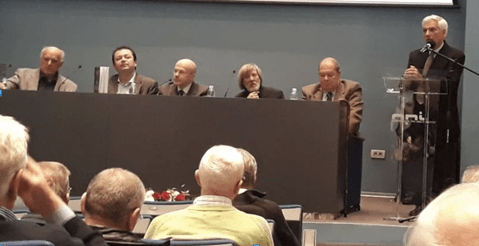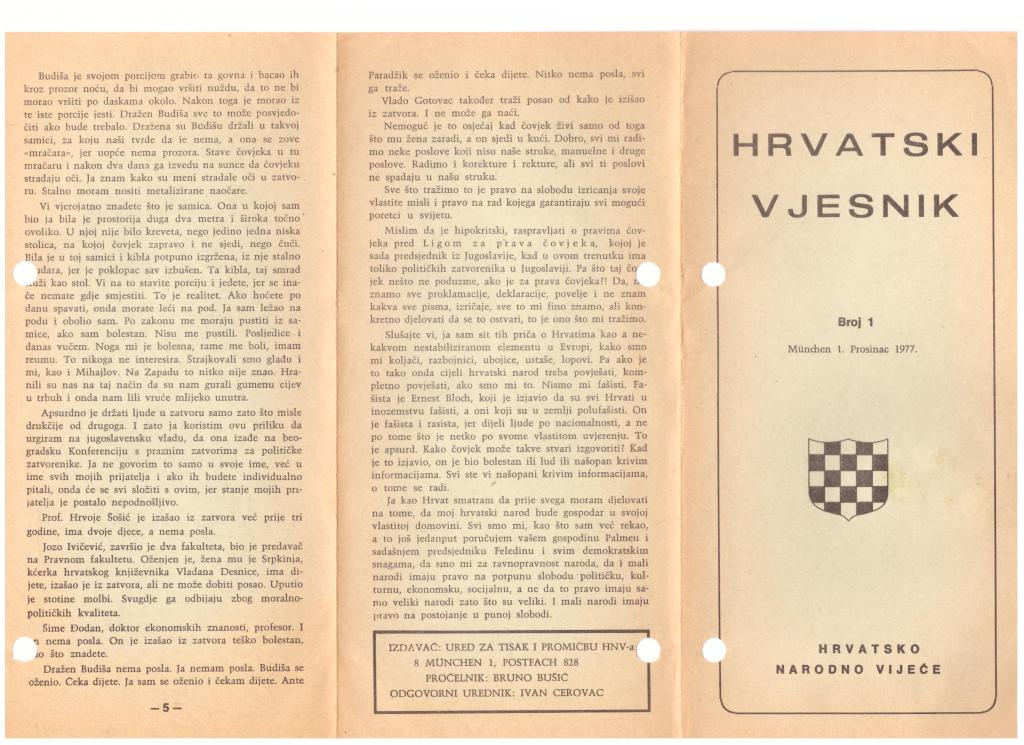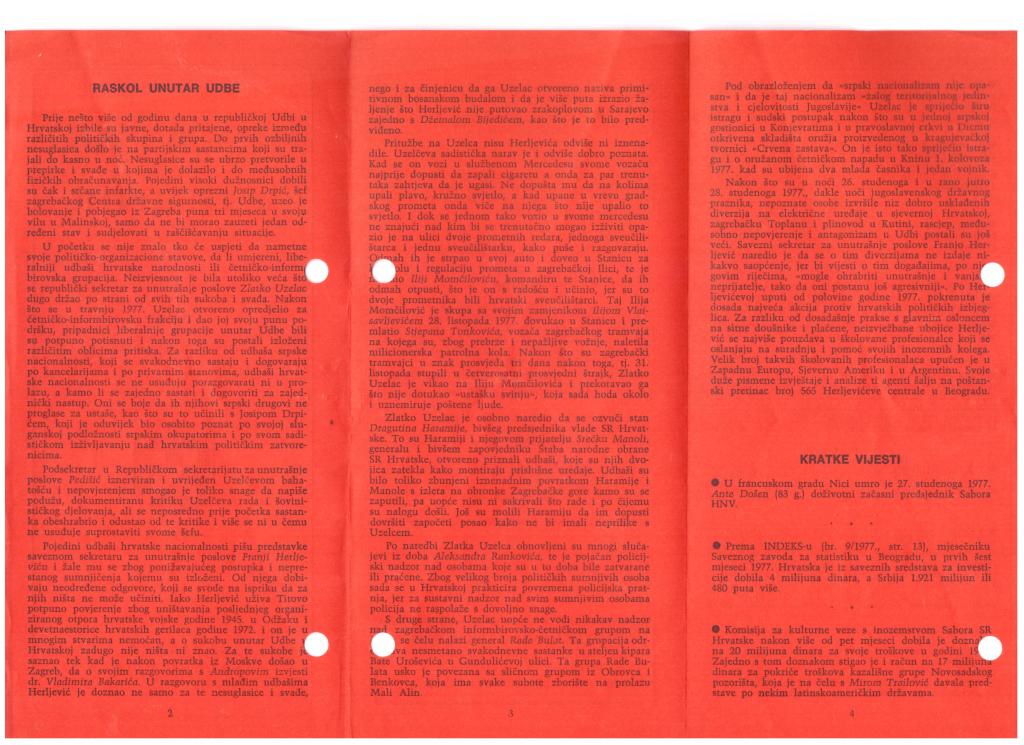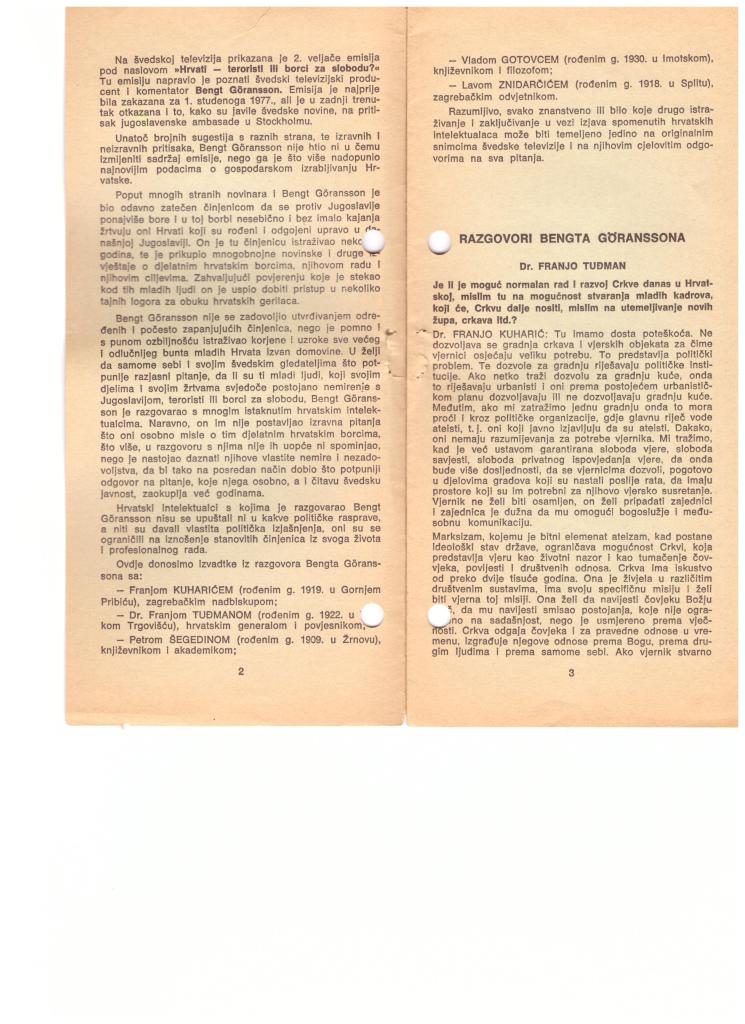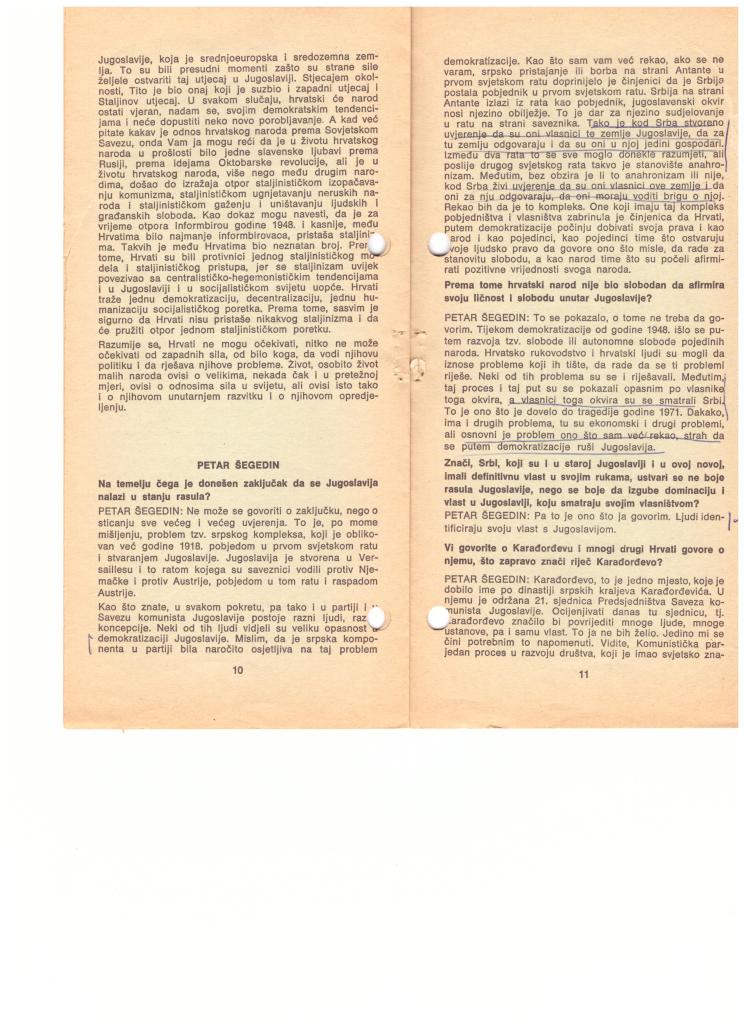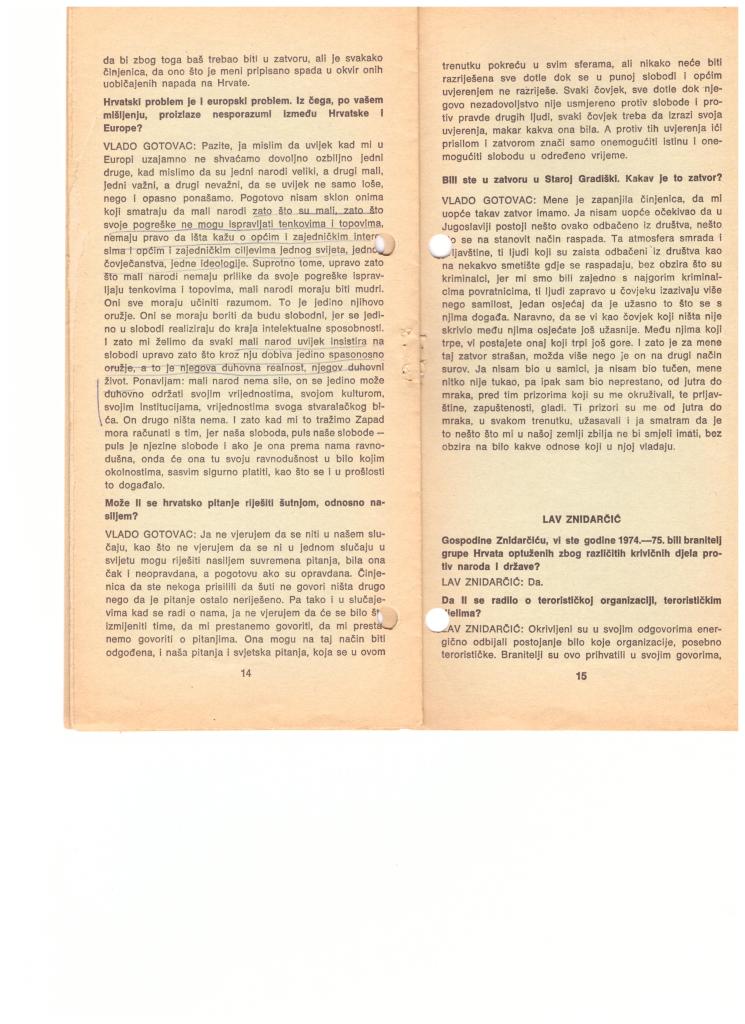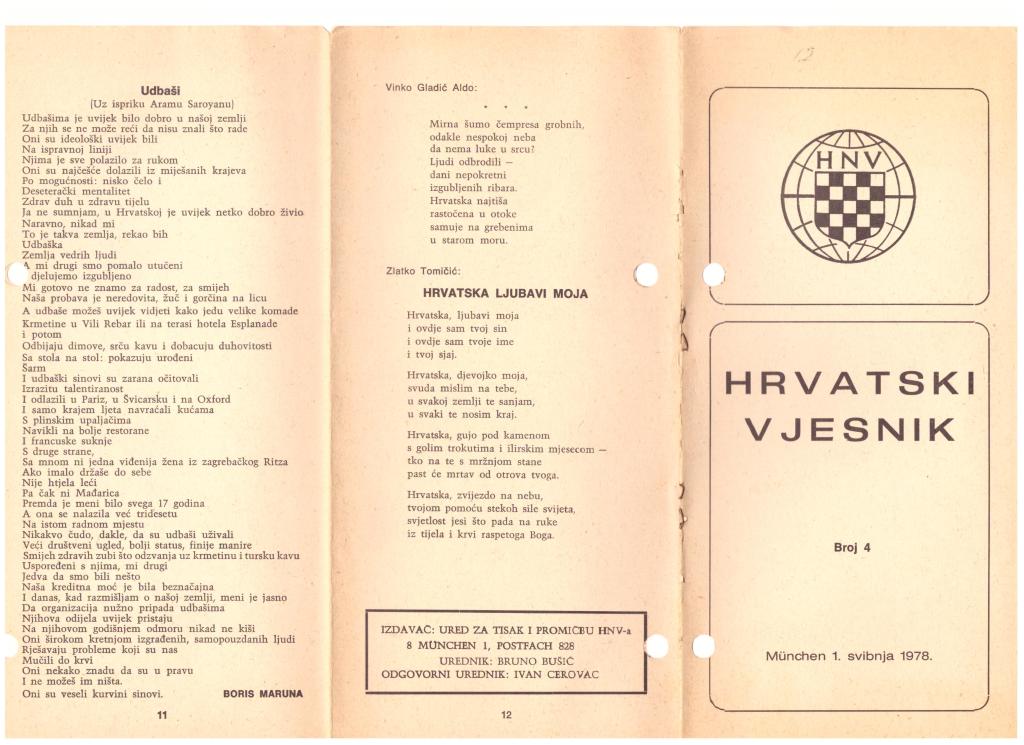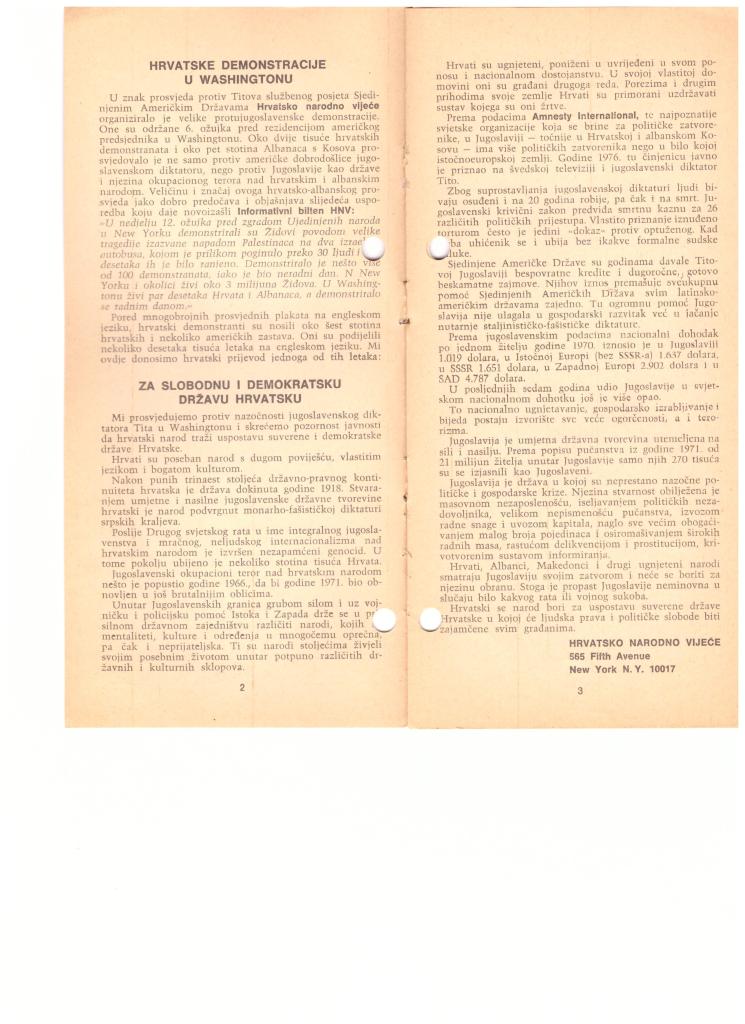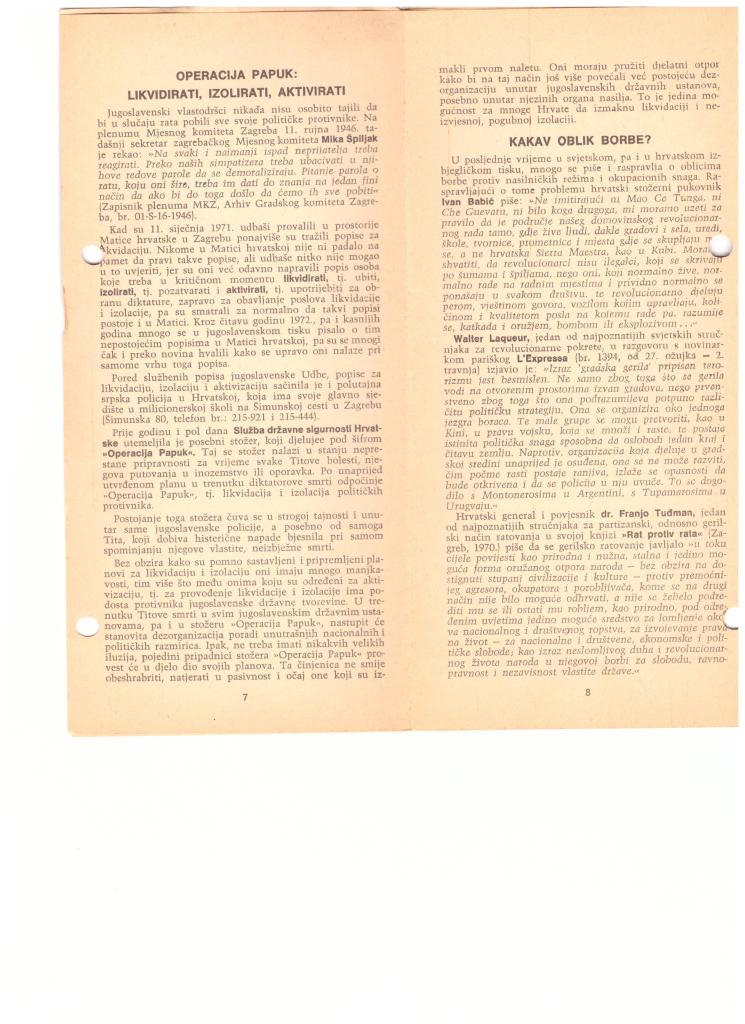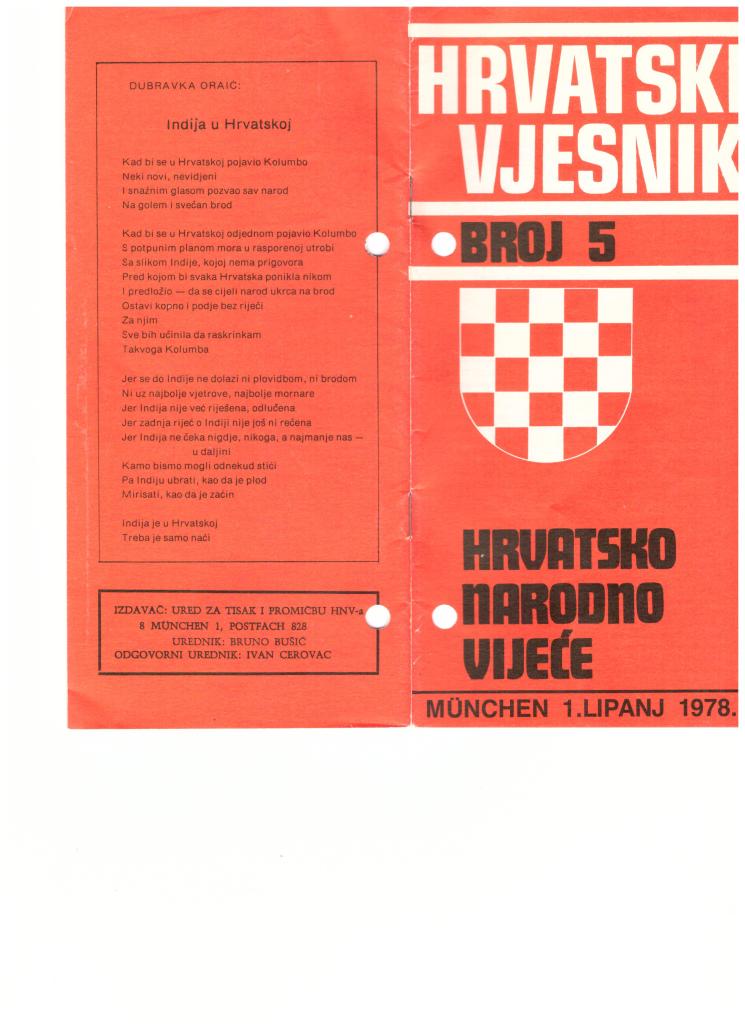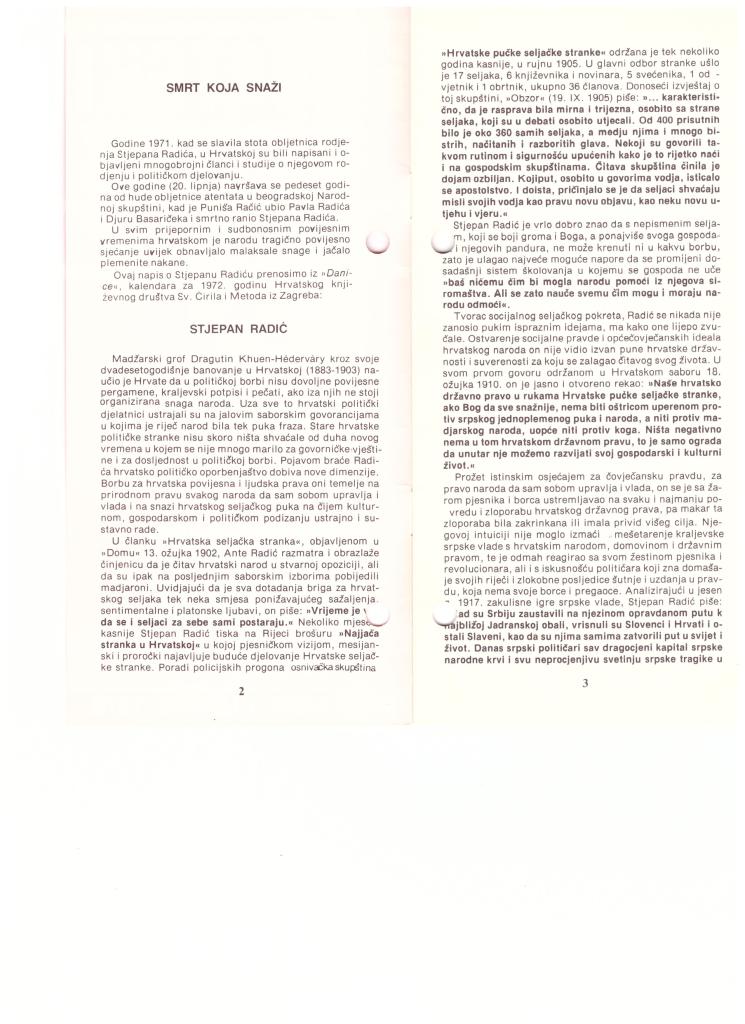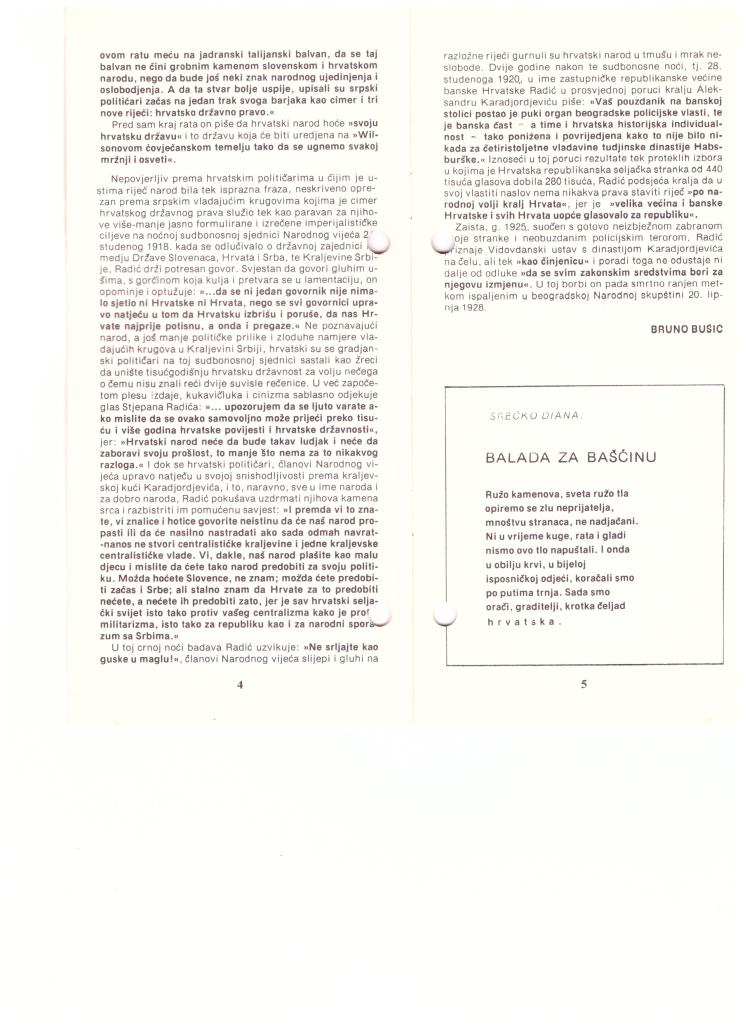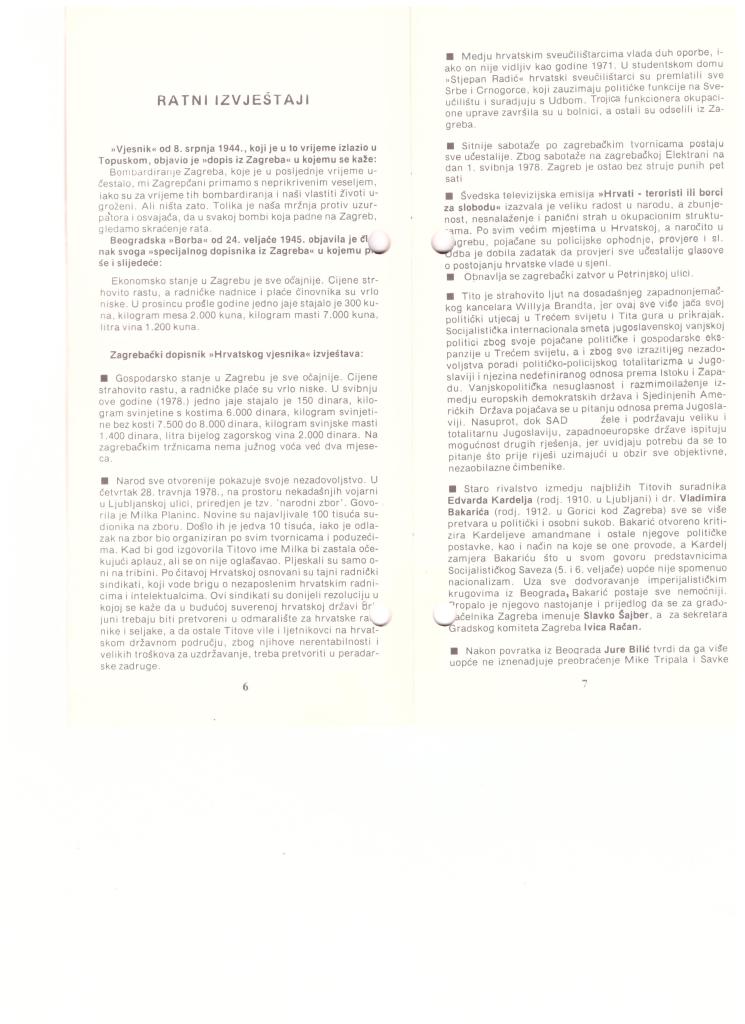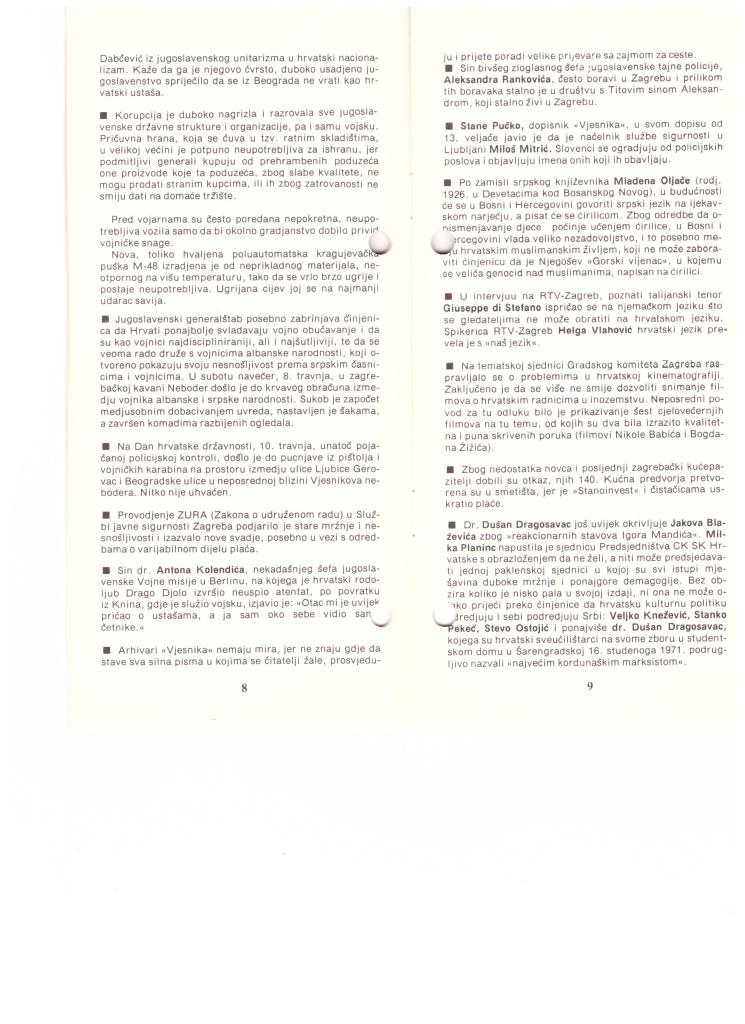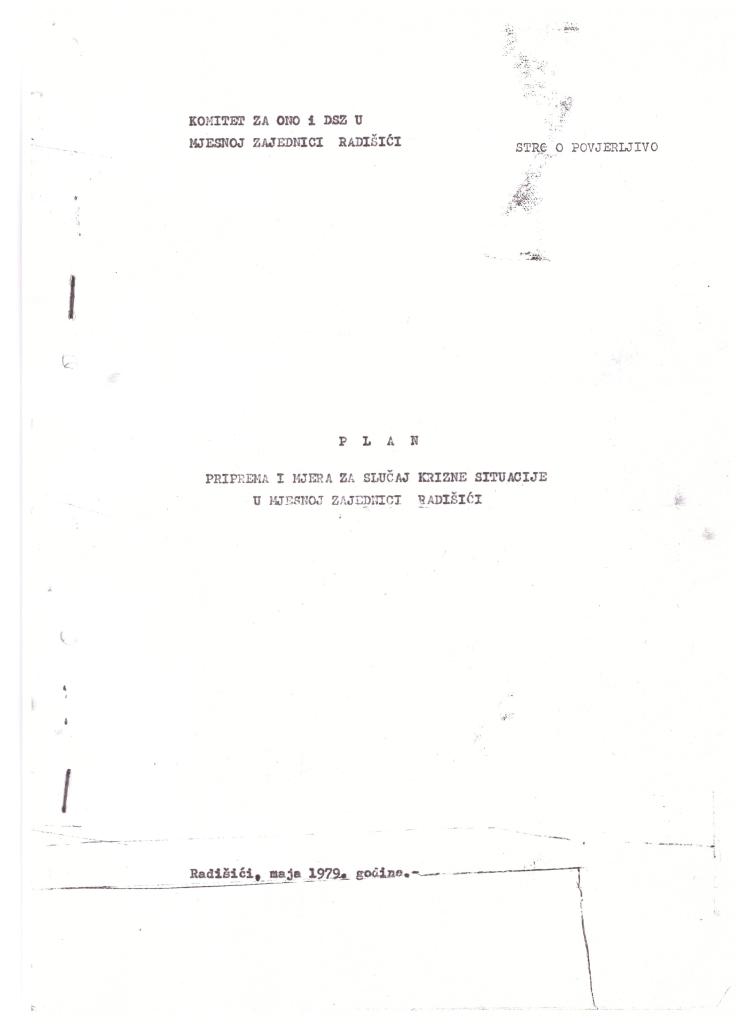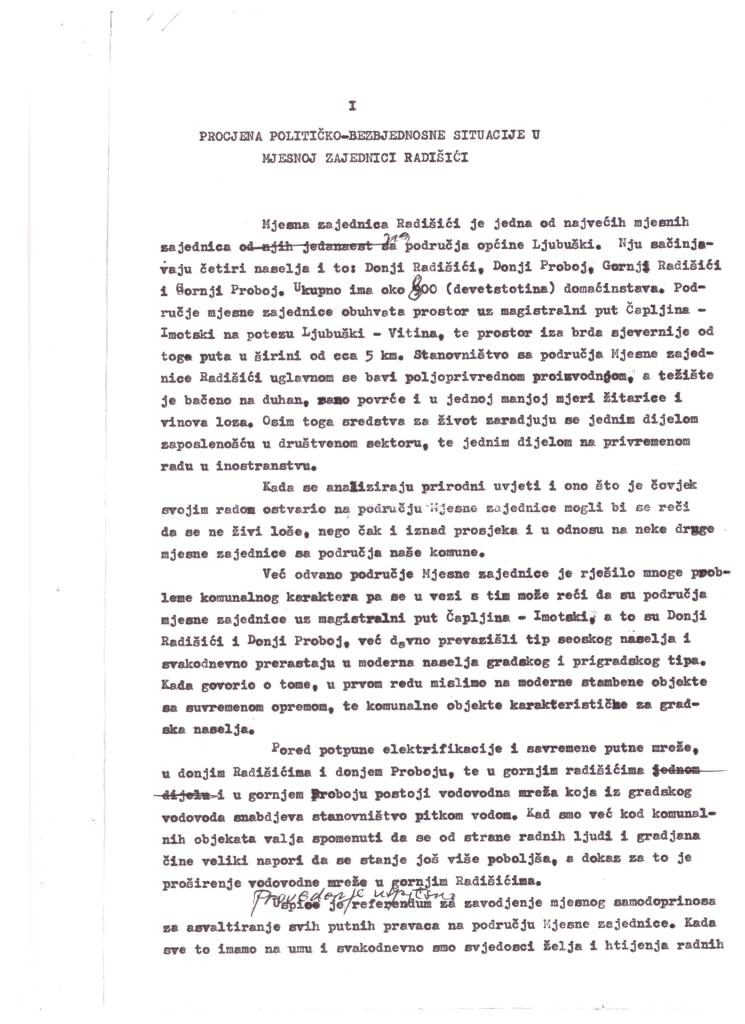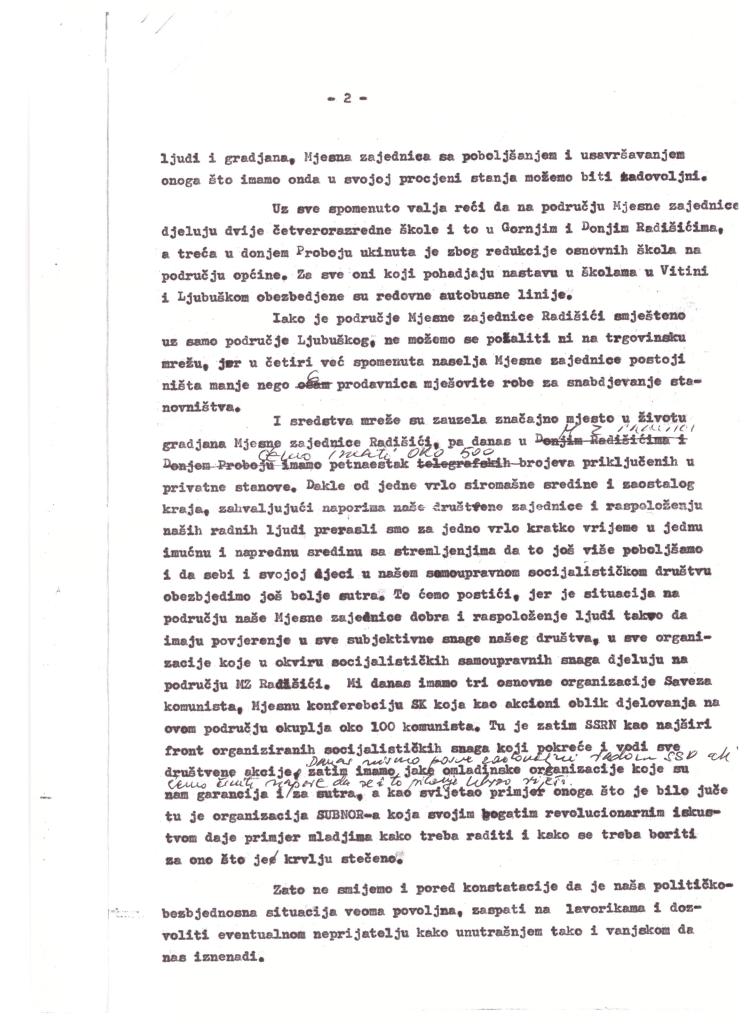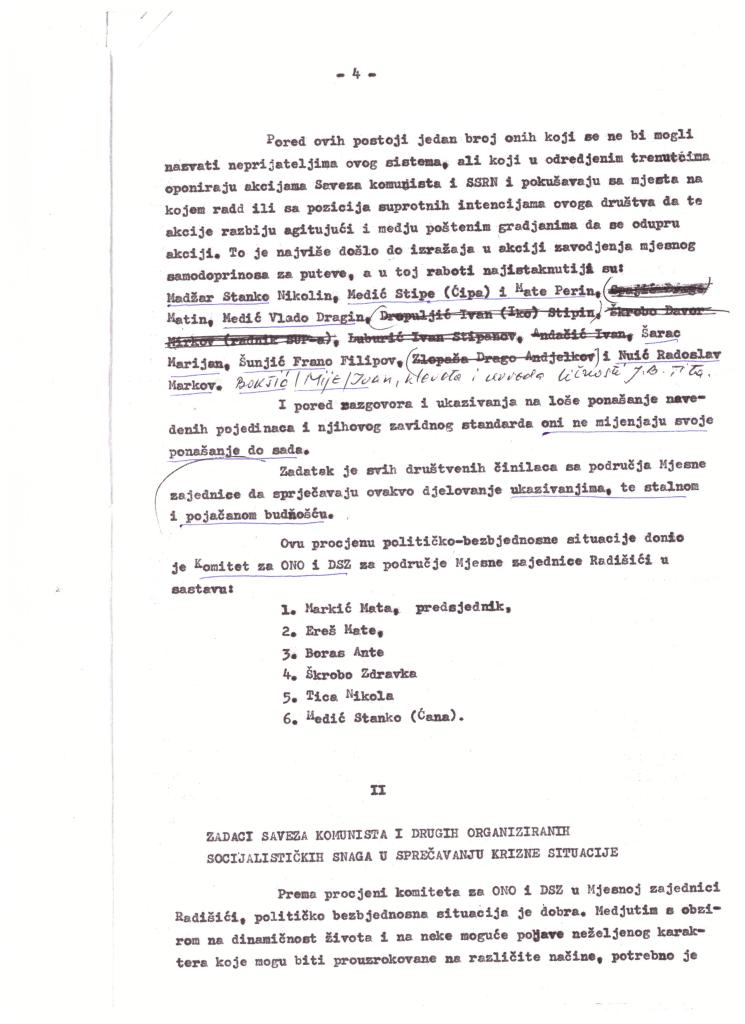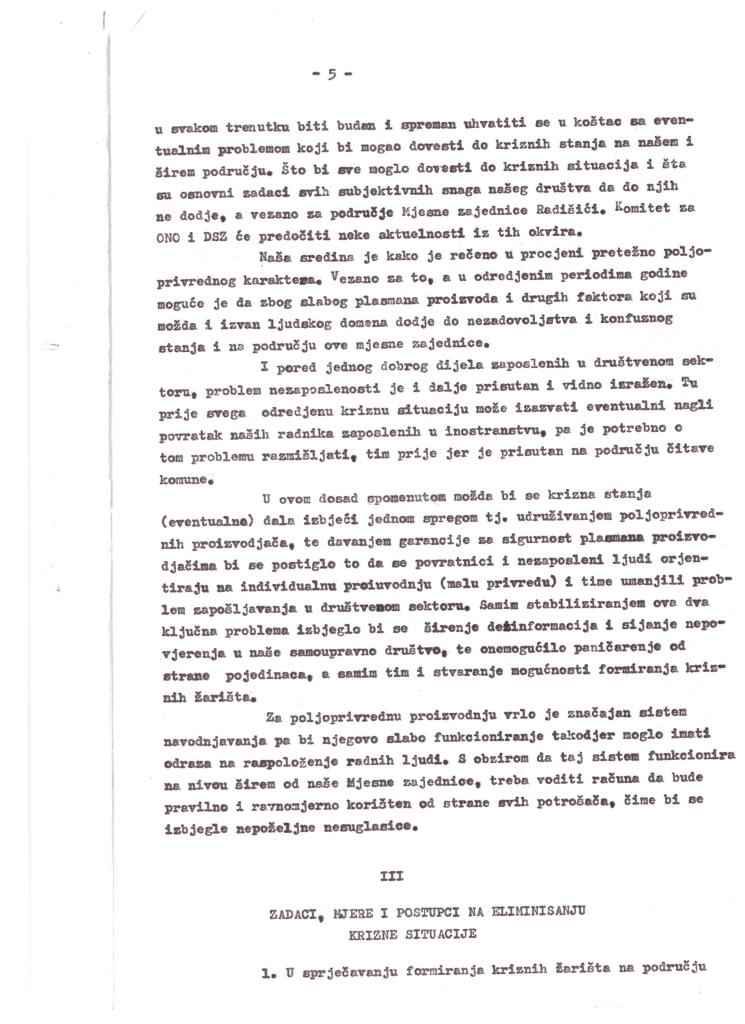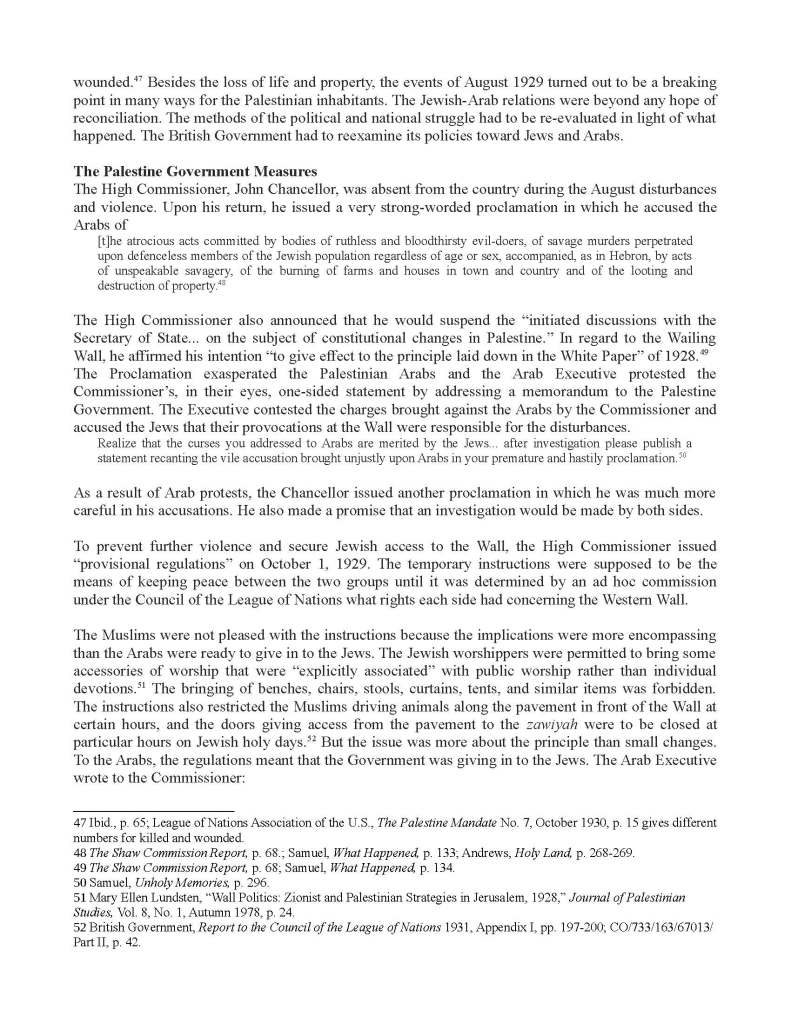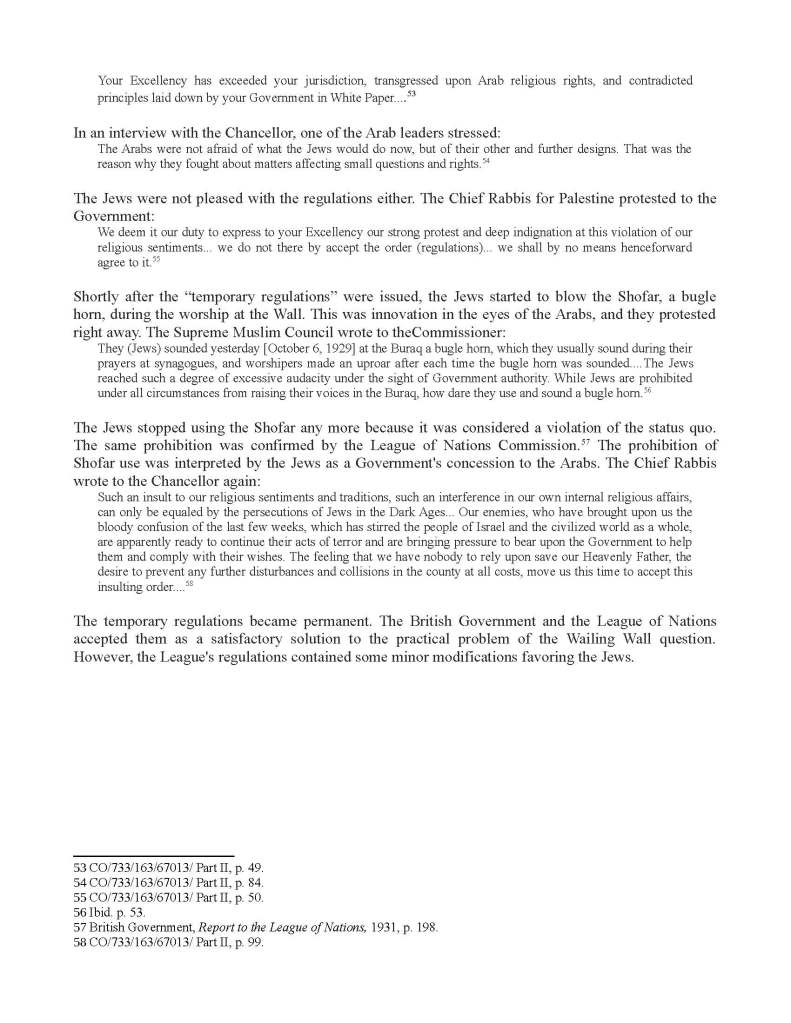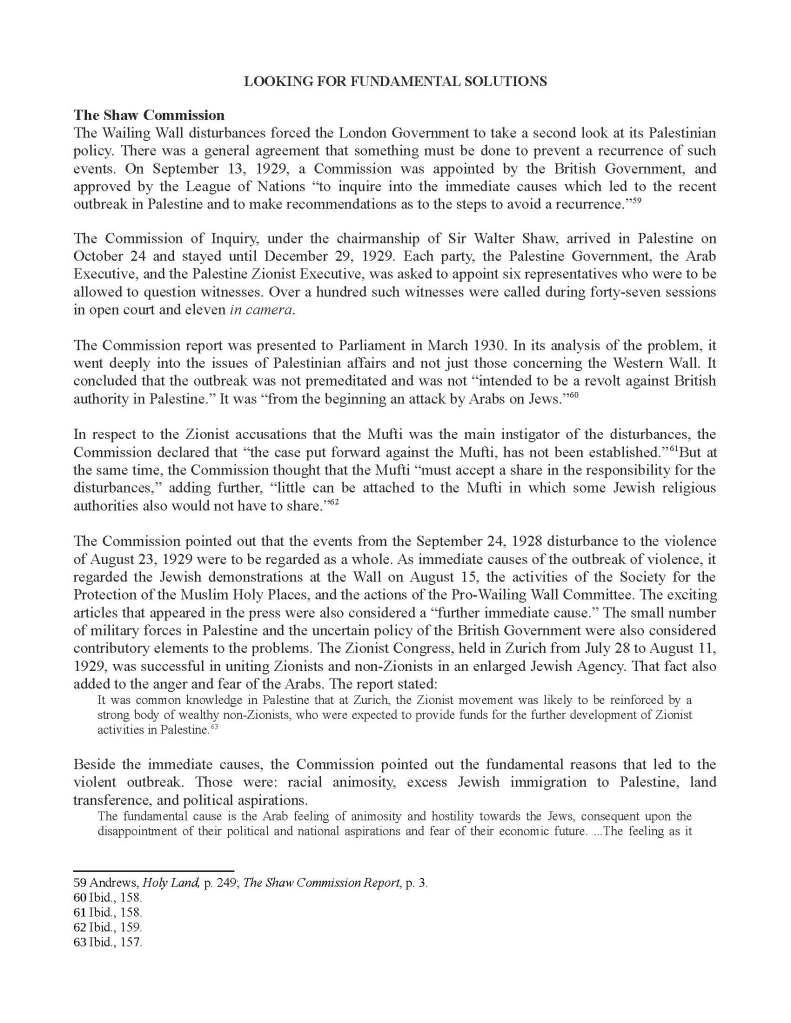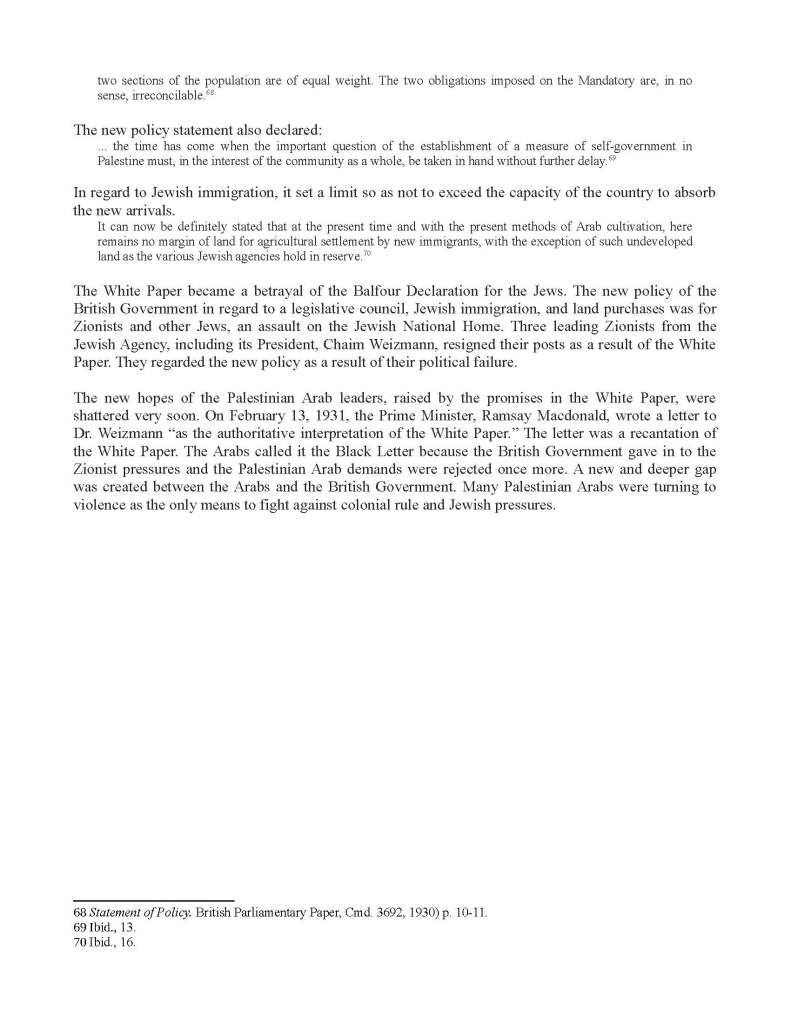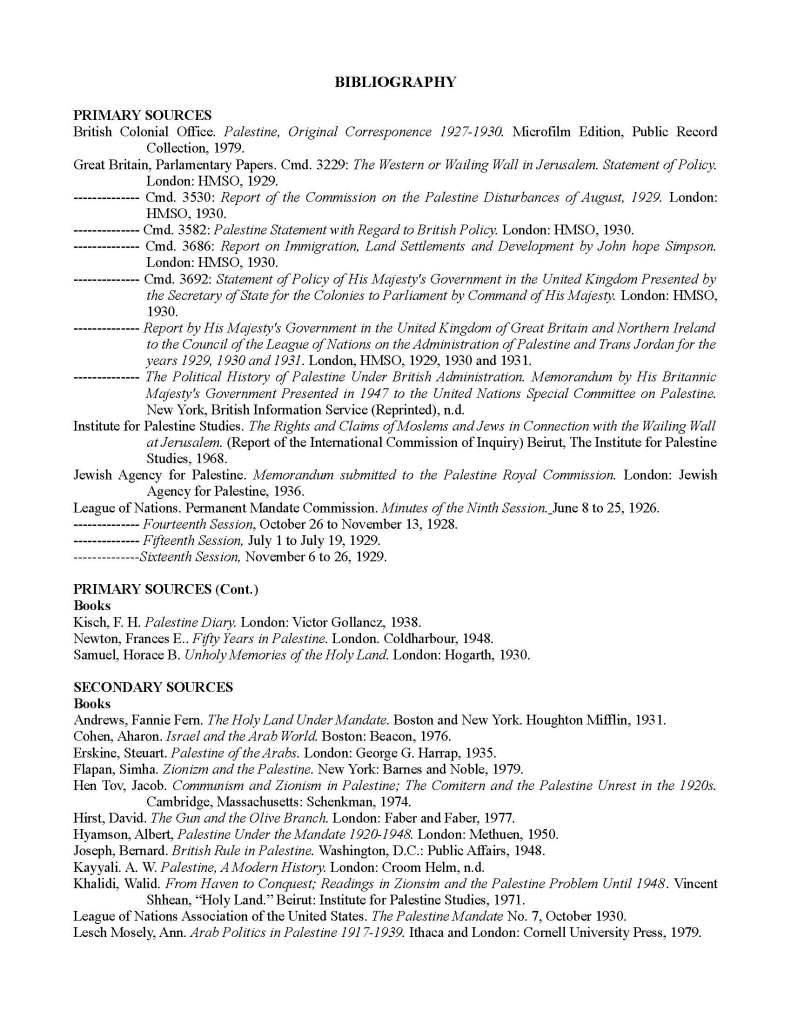Published in The Eclectic Magazine of Foreign Literature, Science and Art. New York. Vol XVI – No. III, March, 1849, pp. 358-369. Originally published in The New Monthly Magazine.
The Ban Jellachich! The very name plunges us into the midst of wild reminiscences, barbarous heroism, strange irregular grandeurs! Sclavonic history is rich in all these half savage, bur fascinating glories. See how they stride out before us, the two Nicklas Zrinyi, the hero of Szigeth and his descendants, Czerny Georg, leader of the Servians in their war for freedom, and a whole host of others! The Ban! – the very title is full of romantic mysticism. It is as if we heard that the Grand Master of the Teutonic Order or of the Swerdt-Brüder was encamped before the Brandenburg gate at Berlin. We thought all these medieval magnificences had disappeared under the peruques. Austrian as well as Prussian, of the eighteenth century. We knew of nothing more venerable than Frederick the Great’s pig-tail and Kaiser Franz’s jack-boots. But it seems all this not only lives, but lives very energetically and effectively. People are beginning to ask not only what is a Ban, but who is the Ban? And both are proper questions and well deserving to be answered, as we hope to show before we have closed this paper.
A Ban is a very respectable and a very real dignitary – something like our Lord Warden of the Marches, or more resembling still, the old, not new Italian Marchese, or German Margraf, but somewhat higher than all these – a sort of Lord Lieutenant of Ireland, as he was wont to be in the times of Henrys and Elizabeths, when he had Desmond insurrections to attend to – or in the time of Charles, when the Puritans of the North in fierce revolt against Charles represented the Hungarians as the Catholics under Ormonde for the moment, the Croats and Sclavonians. In olden times there were many of these marches, or borders, or Banats, in the west and southwest provinces until by successive absorptions they were reduced to one, the united kingdom of Croatia, Sclavonia, and Dalmatia, which held watch and ward for the Austrian empire, on its most dangerous frontiers, against the still more barbarous Turks. The „Ban“ or „lord“, as the name signifies, is the third of the Hungarian barons of the empire, holds in his own land the rank the Palatine and presides at the „Bantafel,“ or Ban council at Agram, as the Hungarian Palatine at the royal council at Pesth. And high as is the honor, it has been raised still higher by the great men, (some of whom have been just noticed,) who have held it. Of these none perhaps is even now more famous than the present bearer. And yet we are only at the first or at most at the second chapter of his history.
Jellachich is a Croat – a Croat to our ears sounds something like Cossack.
We see a horde in the act of burning their way through defenseless villages, or marching through towns from which their inhabitants had fled, no grass growing where their horses’ hoofs once had trod; famine before, and pestilence behind, more dangerous to friend than foe, only a few massacres off from the exploits of the Turcoman and Tartar. The leader of Croats, to keep Croats together, must be the worst Croat of them all. Jellachich, as a sort of army-elected chief, could only have gained their hearts by much the same qualities as gave Alaric and Attilla their soldiers sovereignties, daring, active, cunning, cruel; the more barbarian, the more likely to be successful. Such certainly has been very much the Magyar coloring of his portrait, and from old predilections in favor of Magyars, partly owing to that magnificent acclaim, „ Moriamur pro Rege nostro Maria Theresia,“ and partly, we believe, to their heroism, or at least heroic dress, we are inclined to trust ourselves implicitly to their accuracy. Till lately, we candidly confess, we saw in the Ban little more than a stipendiary of absolutism; hired by the Kaiser, much as Goth or Dacian freebooter was hired and converted into a patrician or consul by the Caesers of old to bring back, when the empire was crumbling around them, some rebellious fly-away kingdom to a sense of unity and allegiance. The Sclavonic version is of course different; it comes from the hand of an admirer. But there is a third, which is neither Magyar nor Sclavonian, without favor as without hate. Many of the features in the following outline come from one who stood near enough to see, but was clear enough from race-partialities to see rightly.
The Ban is an European prince, in the decent European sense of the word; equal to any in refinement, above most in energy and genius. And it is a singular phenomenon, not less attractive to the philosophic historian than to the poet, the contrast which these broken-down monarchies present to the young democracies. The impulse of progress seems to have worked less wonderfully, to have thrown up less mind, if more minds, than the despair of dissolution. What has come forth from the cauldrons of France, Italy, and Prussia? Yet Austria has made a new Æson out of the old; in her agony she has given birth to Radesky, Windisch-Grätz and Jellachich.
Jellachich – to begin with the man himself – is no Francesco Sforza, no Condotiere, no buccaneer of fame. He is of a noble, almost of a Ban family. Joseph Jellachich, (Jellacic,) Baron Jellachich de Buszin, is the eldest son of the Baron Franz Jellachich de Buszin, who, as retired field-marshal and proprietor of the 62d regiment of infantry, now Turszky, died at Agram in the year 1810. Of Croatian parents on both sides, Joseph was born at Peterwarden, on the 16th of October of the same year, on the anniversary of the birth of the celebrated Czerny Georg, thirty years before. In the child, the characters of father and mother were blended; under the letter, during the prolonged absence of his father in the French war, the earlier part of his education was passed, and from her gentle teaching were drawn all those soft and kindly affections, that early passion for poetry, and devotion to intellectual pursuits, which so mark him out from his fellows; his indomitable activity, his frank and firm spirit, his unaffected, dashing cheerfulness, he inherits from his father. In his earliest infancy he was remarkable for the quickness of his perception, and the accuracy and tenacity of his memory; as years rolled on, he gave indications of great precision in all he applied to; already indications were visible of that eloquence for which he has since been distinguished. His self-control and presence of mind were far beyond his age. When eight years old he was presented to the Emperor; Kaiser Franz, struck by his intelligence and vivacity, took a particular liking to the boy, and had him forthwith placed in the Theresian Academy, which, despite of its cloistral and even ascetic character, has, somehow or other, turned out, in both the military and civil departments, some of the highest ornaments of the Austrian name. In this school, Jellachich developed those powers for the acquisition of languages, which at a later period evinced themselves in the facility with which he spoke German, Italian, French, Magyar, and the several idioms of the Sclavonic. His predilections, however, were military. Military tactics, with their accompanying sciences, history, especially ancient, and modern literature, were his favorite studies. With these be combined the usual corporeal exercises, and became an expert fencer, a good rider, and a first-rate shot.
At the age of eighteen, his physical and intellectual preparation being completed, he entered the army as sub-lieutenant in the dragoon regiment of his maternal grand-uncle, the General of Cavalry and Vice-Ban of Croatia, the Baron Kneserich, of St. Helena, then under the command of Colonel Olah von Nanas, and was sent to join whilst it was still garrison at Tarnow in Gallicia.
In this service he soon acquired the love and esteem of those around him. Just and humane to his inferiors, true-hearted to his equals, punctual and submissive to his superiors, he was at once regarded in every respect as an excellent officer. The Austrian army abounds in small societies, fraternities „auf Noth und Tod;“ they go far to maintain that military spirit and good fellowship which still keeps the army together. He was their very soul. His gay and intrepid bearing, his wild and vigorous enjoyment of life, his invincible good temper, his sparkling wit, fascinated and informed as with one spirit every circle in which he moved. Of an iron construction, he was last at the table at night, first on horseback in the morning; in every freak, in every exploit always foremost. And under all this, which so marked the future free-chosen chief of a bold, adventurous people, he concealed sources of the purest and gentlest poetry, a soul melting with tenderness, a spirit of devotion and self-sacrifice, almost absolute, to his own. Though often in female society, he is said to have scarcely noticed the passions he awakened; his whole being hung upon his companions in arms, and the charities of his own home. Over his mother and sister, of whom he was early deprived, the latter in the full lush of youthful beauty, he still mourns; to his two brothers, one, colonel in the Carlstadt border regiment, the other Chief d’Escadron in the dragoon regiment of the Archduke Franz Joseph, he was ever most devotedly attached. But this somewhat dissipated life could not be continued long with impunity. After five years his vigorous constitution began to give way. He was attacked with a serious illness, accompanied with much suffering; at any moment it might have terminated in sudden dissolution. Those who saw him at that period on his bed of sickness, and possibly, as they then thought it, of death, speak with admiration of the unaltered composure, and almost defying serenity with which he met the visitation. And then, too, it was, that he composed most of his poems. They well preserve the temper of mind in which they were written. They breathe the daring and lofty aspirations of a young, unsatisfied mind after a nobler future, bitter sighs over his abruptly broken existence, and a thirst and hunger for the energetic and useful in deed and word: should Providence vouchsafe him an hereafter. And so it happened; Providence proved merciful. In 1825 he began gradually to recover his convalescence soon proceeded rapidly; before the year was over he was enabled to rejoin his regiment, then quartered at Vienna. It would be difficult to describe the joy, the jubilee with which he was received by his fellow officers. He was at once chosen by Major General Baron Geramb as his adjutant of brigade, and so serviceable did he render himself in this capacity, that on his regiment moving under Colonel Count St. Quentin for Poland, he was retained in the capital, nor allowed to follow till a year later.
When once more among his old comrades, he resumed all his old habits; he was the beginning, middle, and end of all proceedings. Jellachich was everywhere in demand; nothing could be thought of, nothing done without Jellachich. No one more precise, or even pedantic, in the performance of his military duties; but no sooner was the sabre thrown aside, than he was sure to be found at the head of his fellow-officers, in some desperate chase, through thick and thin, night and rain, after amusement. After passing a joyous day in the stations near, he and his detachment were often in the habit of riding back miles together, to be in time for the parade of the morning. Jellachich was a reckless rider. On more than one occasion horse and rider escaped from pit and morass by his presence of mind, or the timely aid of his companions. In the tumult of these wild expeditions it was that he composed most of his war and soldier songs, and in particular the „Garrison’s-Lied,“ or „Garrison Song,“ so well known and so heartily sung through the whole of the Austrian army. A joyous chant it is, a biting satire on the old antiquated martinet system of Austrian tactics, but withal full of right good hope for the future, a hearty inspiring cheer, like the call of a trumpet, to good, fellowship, brotherly union, and an honest soldierly maintenance of military spirit and discipline.
And now the French Revolution of July broke out, and great was the bustle on every side. In the apprehension of immediate war, augmentations, advancements, promotions, a general stir showed itself through the whole empire. Jellachich profited with the rest. Through the patronage of the then new President of the Council of War, Baron Von Radossevich, an old and grateful friend of his father’s, he was promoted to the rank of captain-lieutenant in one of the Hulan border regiments. The separation from his old fellow-officers was on both sides a severe trial. Nor to this day is it forgotten. Eighteen years have now passed, but the evidences of his attachment are as strong as ever; whilst he is now, as always, their favorite. His „Garrison’s.Lied“ they claim as their especial property; no joyous occasion is ever allowed to pass without thundering it out, as of old, in hearty chorus. Nor was this confined to them; he soon added new friends to old; everywhere loved as soon as known, he succeeded in winning, as no other officer had yet done, the sympathy of the entire army. In the beginning of 1837 Jellachich advanced another step. We find him major of the Gollner regiment of infantry, now the regiment of the Archduke Ernest, and adjutant general to Count Vetter of Lilienberg, then military governor of Dalmatia.
From this period forth we must look on Jellachich as a new man; the turbulence of his youth began to settle down; he gradually assumed the more earnest passions of manhood. In his new situation, and under the guidance of his gifted chief, he applied himself with eagerness to the study of the character and position of Dalmatia; a poor province, but to Austria of incalculable importance as was well seen by the sagacity of Napoleon. On the death of Lilienberg, Jellachich, with the rank of lieutenant colonel, was appointed to the first Border regiment of the Banat, and in 1842 took its command as colonel. At the head of this distinguished corps he repelled the incursions of the Bosnians, and by his courage and judgement at the affair at Posvid, gave already promise of his future military glory.
But military glory and talent were only means to an end. Jellachich was soon to appear in a higher position and character than that of a mere successful commander.
The revolution of March, 1848, opened altogether a new era to the Austrian empire. Rights, which had been well won by many a bloody and prolonged war, long claimed and long promised to a devoted people, were at length conceded, when they could no be refused, to all his states by the Emperor Ferdinand. In the time, in the manner in which these concessions were made, there were many elements of confusion. The court was reluctant, the people distrustful. There had been a long inward struggle, under outward appearances of stagnation, not merely between sovereign and subject, but, as it is now known, between court and cabinet. Even Metternich, behind the country, was far in advance of the Camarilla. For some time past, at least wise, if not liberal, he saw, and warned, and would have effected as he had advised, many changes, as indispensable as they were just, not so much through love of reform as through fear of revolution. No wonder then that with this consciousness―nations in these moments and matters have a sort of instinct―Hungary should have endeavored to secure, beyond the contingency of a reaction, her own liberties, and, as the most effectual mode, should have resolved to separate from the empire, and to set up for herself. Not so Croatia―her object was the same as that of Hungary, but the means sound policy pointed out for its attainment widely different. Had Hungary been an homogeneous community, with no antagonism of language, race, and religion, the course for each of the three states which compose her kingdom ought in policy and patriotism to have been the same. But such is not the case; and here, as elsewhere, the results, naturally flowing from such diversity, have followed. Apprehension of the future, resentment for the past, soon produced a total opposition of thought and action. The possessors of power feared to share their power; the excluded from power claimed and proceeded to enforce its participation. A Magyar ascendency was established; not in the sense of the common interests of Hungary, but of those of a faction in Hungary: like all factions, unjust and unwise, it claimed all for itself, and would share nothing with its fellow-subjects and fellow-countrymen, the Sclavonic races of Croatia and Dalmatia. There was no excuse for this. These races in number are superior to the Magyar, nor was there any other ground more tenable to justify such assumption. In a mere brute conqueror such course might have been consistent; in men who demanded rights for themselves, who justified their efforts for separation on the ground of these rights, who went so far as to attempts to enforce them against Austria in favor of Italy, it was an absurd and unendurable atrocity. It will best be understood by English readers by referring to similar hypocrisies in Irish history; to that cry of the Irish Protestant Parliament of 1782 for independence from England, in the name of Ireland, at the same time that they were disdainfully shutting out a large portion of Irishmen, the whole of the great Catholic masses, from its enjoyment; clamoring for a free constitution, as if a constitution for a party, and not for a country, could by any possibility be free.
Whilst in connection with Austria, as dependent member of the empire, as one only of the three united kingdoms, this monopolizing and excluding policy was hardly practicable. To leave full range for the injustice, the Magyar must, in the first instance, be left to himself. To oppress Sclavism there must be no monitor German or Tzeckian; no empire, no head, to control or command. Hence, as the obvious preliminary, separation from Vienna became necessary, not so much from hostility to the Kaiser, as through detestation of the fellow-subject Sclave. Not equality or freedom, but right to rule, and not be ruled, was their demand. And there soon could be no mistake about the means. Short only of a state open revolt to her still recognized king was the condition of Hungary from the month of April on. She sent her ambassadors to Vienna, and later to Frankfort, as if altogether to a foreign power; she claimed the right of raising and disposing of her own troops, bound not by the general but special Hungarian oath; she used every effort to divert from their allegiance troops till then devoted to the emperor; she expressed her sympathies openly and unequivocally with the insurgents of Italy; she recalled her regiments from Lombardy, and refused all further aid for the continuance of the war; she repudiated all share in the imperial debt, all joining in the imperial contributions, all help of blood or money, „were the monarchy itself thereby to fall to pieces;“ in a word, in terms as plain as deeds could speak it, she declared her fixed determination to have nothing henceforward in common with the empire. In this emergency Croatia saw herself a serf still, in a free country, involved in a life and death struggle for right and equality, in a furious contest for home and altar―the worst of all civil wars. Aid had she none against the menaced wrong, but in her own right arm and the protection of the empire, which, however weak it might be against all, was all-powerful against each. To the empire, then, and to its head she flew. The emperor and the monarchy, one and undivided, was her battle-cry along the whole of her borders, a cry which burst the bonds which for 800 years had bound South Sclavonia to Hungary, and let loose on that devoted land, against the will and in despite of the remonstrances of Croatia herself, the wild hordes of the Raizes and Servians.
It was at this moment, pregnant with the destinies of their country and the integrity of the monarchy, that a Croatian deputation arrived at Vienna. They came to lay at the foot of the throne the expression of their fears―of their devotedness. They pledged „Gut“ and „Blut“ for the maintenance of the Imperial crown, the union of the empire. But they implored the emperor to give them means and opportunity to redeem this pledge. They prayed him to place at their head a chief who could lead them, and whom they would follow. They solicited him to nominate a man equal to the emergency, to appoint as their Ban the Colonel Joseph Jellachich.
The emperor was not insensible to the dangers which were fast gathering around him, and sympathized in their apprehension and resentment at the proceedings in Hungary. He granted the prayer. Jellachich was appointed Ban of the three united kingdoms, and in a few days after covered with honors. He was successively created privy counsellor, field-marshal, proprietor of two regiments, and general commandant-in-chief of the Banat, Waradin, and Carlstadt districts.
The new Ban at once comprehended the weight and responsibility of his position. They were not ordinary times; it was not an ideal dignity. A great Sclavonic movement had begun; not volunteered, but provoked, therefore more likely to be passionate and perilous. He was called on to master and guide it. Thereby only could the rights of his own race, religion, and land be vindicated, the rights and power of the emperor maintained, the freedom, with the order of the whole community consolidated. „My lot,“ says he, writing confidentially at this time to a friend, „is cast. I take the straightforward path, the frank and open course; if I stand, well; if I fall, I fall as a soldier, a patriot, and a faithful servant of my emperor and lord!“
But this was no easy task; to master the movement, it was first necessary to master the sympathies of his countrymen, to penetrate himself with the fullness of Sclave nationality, to seize and wield the common heart. But this he sought not by blind fanaticism to the phantom of Pansclavism, as the German papers have asserted, nor by servile submission to the pretensions of the Czar, its assumed head, as was echoed from the Tribune of Pesth to the Aula of Vienna, still less by any miserable coquetry for a momentary popularity with all parties. Jellachich was the idol of his nation, but his secret was simple and honest. He was so by force of character and virtues; he was so because quick and bold in the hour of danger; with iron hand he seized and worked the rudder of the state, and over surf and rock bore the laboring vessel gallantly and safely into port. Indefatigable, universal, everywhere present, and on every emergency, haranguing the people, admonishing the authorities, adjuring the clergy, in the street, at the council, from the altar, praising and punishing, conciliating and organizing, he was the very man for the times, as the times were very times for him. Nothing discouraged him; nothing daunted him. He met the popular tumult and the enemy’s charge with the same boldness, the same composure. A turbulent meeting had disputed some of his orders; he entered it without notice or attendants; the murmurs, every moment growing louder, rang along the benches, till at last one who seemed to act as spokesman for the others, relying on their numbers stepped forward and exclaimed.
„No! though at the head of ten thousand bayonets thou shalt never intimidate us.“
Jellachich struck his sabre calmly aside, and replied―
„And without arms, the Ban keeps order and quiet in the land.“
The resistance of the crowd was charged into admiration; enthusiastic „Zivios!“ burst forth from every side.
And thus it was that he succeeded in breathing into the South Sclavonic movement one feeling and one will. Every heart clung to him as to the only champion of his country’s rights, or preserver of her good order and peace. Croatia was not without its ultra-democratic party; even among the Sclaves there were sympathizers with the Hungarians, but whatever may have been their opinions or views, their numbers were few. The great mass of the nation, beyond all question, had but one political creed―union with the empire, maintenance of their nationality, full development of its resources and liberties, on a perfect equality with every other portion of the state.
In the excitement naturally resulting from the collision of two such powerful elements, it could hardly be expected that decencies and proprieties of literary warfare would be much regarded. The arrows shot forth from the Hungarian press against the Ban, whose crime, after all, was not more than endeavoring to obtain for Croatia what the Magyar looked for Hungary, and who in a juncture of general weakness and faithlessness gave a signal example of energy and devotedness to his country and sovereign, were sent back, it is true, by the Croatian. But there was this difference between them; the Croatian press did not intermeddle with the domestic affairs of Hungary; it acted on the defensive, it defended the cause of the Ban and the country, and however provoked, always replied with dignity and self-control. But the time was past in which such weapons could much avail.
Newspaper invectives were no longer adequate to repress his growing power. Recourse was had to other expedients. It was sought to render him suspected in the eyes of the very sovereign whom he was laboring to serve.
Sick and feeble lay the emperor in the royal palace at Innspruck. It was a remote and retired spot. Many of his best friends were absent; he was surrounded by an Hungarian ministry. Through all the borders the irruption of the Raizes and Servians had produced alarm; the cry of „the country is in danger“―that tocsin cry which creates so much of the danger it affects to apprehend, was heard on every side.
The Ban, it was represented, might easily have prevented or repressed this inroad; he allowed the torrent to grow, to advance, to burst all bounds; the cause of this apathy was obvious; the movement originated from himself. It was not less easy to connect him with the Pansclvist attempts in Prague. In a word, the object at which he aimed was no longer to be concealed, ascendency of the Sclave at the expense of the other races of the empire. These representations had their effects; the conspiracy succeeded. The emperor declared the Ban destitué from all his offices and dignities; but, fearful still of the consequences, required that public effect should not be given to the edict, unless in case of his refusal to abide by the decisions of the Hungarians. A more signal instance of court intrigue and short-sighted as well as ignoble policy―dangerous not less to the Magyar than to the Sclave―one more calculated to bring liberty as well as monarchy into contempt―could not have been devised. Jellachich was forthwith put to the test. He was enjoyed not to attend the approaching meeting, on the 5th of June, of the Diet of Agram, and summoned to appear instead at Innspruck to answer the charges preferred against him. This injunction, inspired by Hungarian influence, was well calculated for its purpose. It was an important occasion and meeting, that which was about to take place; deputies from all the Croatian provinces were about to assemble at Agra; grave affairs, nay, the greatest which could affect the feelings and interests of a people, were on the point of being discussed. It had another object. The session was to be preceded by the solemn installation of the Ban. An ordinary man might have obeyed the mandate; the Ban knew at whose suggestion it had issued; he set at naught the summons, and on the appointed day appeared at Agram, and not at Innpruck. Enthusiastic was his welcome; great the jubilee with which he was received by all classes of his countrymen. His installation was performed amidst universal acclamations by the Greek or non-united Bishop and Patriarch of Karlowitz, partly in consequence of the Bishop of Agram being absent, partly from a wish to give evidence in his own instance, that, even in Croatia, religion and church were now free. And strange the contrast the proceedings of that day presented to any one acquainted with the secret machinations and duplicity of the court. In the very moment in which he was denounced as traitor by his sovereign, stood Ban Jellachich in the Diet Hall at Agram, doing all that in him lay to rouse, by his eloquence, the affections and energies of his hearers to loyalty and devotedness to that same prince; and so unconscious, or so doubtful of the real opinions of the emperor did he feel, that but a few days after, (the 12th of June,) at the head of a deputation composed of Colonel Denkstein, Count Nugent, Count Ludwig Erdödy, Baron Franz Kulmer, Count Karl Draskovich, and several others, he set out, without hesitation, for Innspruck. His progress through the Tyrol, in the midst of Alpine songs, patriotic music, festal arches, popular cheerings, was one brilliant triumphal march. The Tyrolese sympathized with the Croatians; they were distinguished by the same spirit of devotion to the Imperial House; they had beside some old reminiscences; the name of Jellachich was not unknown amongst them. Many an old rifle in those mountains had fought in the victorious field of Feldkirch under his father. On his arrival, no communication was made to him―not a word spoken of the edict sanctioned by the emperor but six days before. Prince Paul Esterhazy, the then Minister of Hungary for Foreign Affairs, had received instructions from Pesth not to allow of any interview between him and the emperor. On this being communicated to the deputation, it determined at once on instantly returning, the Ban first conveying in clear terms to the emperor, that he did not hold it to be consistent with the dignity of his majesty, nor with his own, to submit to the control of an Hungarian ministry.
But whilst the empire was thus divided against itself, the court gave proof of being scarcely less separated into different parties. The same man who was refused all approach to the sovereign, was received not only without difficulty, but with open arms, by the Archduke Franz Karl and Archduchess Sophia. An audience, through their intervention, was, at last, obtained; out apprehensive of its results, Esterhazy and the Hungarian ministry, no longer able to prevent it, required to be present. The archduke endeavored to meet this new difficulty; the Ban still remained firm in his resolution; he would make no advance to the Hungarians. A middle term was at last found; a public was substituted for a private audience. On the appointed day, (19th of June,) the deputation, with Jellachichn at their head, appeared before the assembled court. All then at Innspruck―emperor and empress, archdukes and archduchesses, the whole of the corps diplomatique, the usual cortége of state officers, lords, and ladies attended. The Hungarian ministry likewise appeared. It was a remarkable scene―Jellachich stood out before his Croatians, before the élite of the nation, and addressed, in his and their name, the emperor. In glowing language he placed before the sovereign the perilous state of the monarchy; the devotedness unto death of a true and valorous people. He spoke of the rights of both, of the interests of both, eloquently and courageously. It was not fitting that faithful servants should be trodden into dust, or passed away with the stroke of a pen to others at the very moment they were laying at the foot of the throne their urgent prayers, that the bonds which held them to the empire should be rendered more indissoluble than ever. Croatia was its right arm―the border provinces its bone and muscle; though not forming more than the five-and-thirtieth portion of the monarchy, they furnished not less than one-third of its infantry, and could, when necessary, make it double. Such a land and people―such hearts and arms were not, in an hour like this, of danger, recklessly to be cast away. The effect was striking; the court was moved, many shed tears. It was something new to see a man of genius, vigor, and intrepidity, addressing a weak and sickly sovereign face to face, before friend and foe. It carried the mind back to times when individuality, still strong, broke down all barriers of rank or position, and ruled by the force of personal prowess and mind. The charges were no longer pressed; the intervention of the Archduke John was sought and employed, with a view to remove the imputations of the Hungarians.
The act of dismissal was not formally cancelled, but the Ban was allowed de facto to continue in the full exercise of his high trust. Every one felt assured that the emperor looked only for the favorable moment to withdraw an edict which it was now clear had been extorted from him against his will. The Archduke John addressed him an autograph letter of congratulation in the most affectionate terms, „An meinen lieben Barnus“―„To my dear Ban.“ The audience was scarcely over when he was received by the Archduke Franz, and the Archduchess Sophia, in the most friendly manner. The Prince Esterhazy seemed to expect a visit; this not taking place, he visited the Ban. It is said they remained closeted for more than an hour; and that the prince on leaving the apartment, apparently much excited, was heard to exclaim, in passing through the Croatians assembled in the antechamber, „What a man! I must myself go to Pesth; this matter must henceforth take another direction.“
And thus he left Innspruck, in the midst of the caresses of the court, the defeat of reconciliation of his enemies, the exultation of his friends, and the jubilee of the people. His return was a festival! And all this was an illusion―a fraud―a snare!
He had now reached Lienz, a small village on his way homeward, when taking up the papers of the day, amongst them the „Wiener Zeitung,“ the first thing which struck his astonished and indignant eye under the date of 19th of June, the very day of his audience with the emperor, was the edict for his dismissal―the edict which was not to have been acted on, and of the existence of which not one single tongue had ventured to utter to him a syllable during the whole of his stay at Innspruck! Nor was this all; as if the court could be true to none, the document reluctantly yielded was rendered by a ruse inoperative; it was published without the counter-signature of an Hungarian minister. The Ban was insulted and derided; the Hungarian was duped and foiled. It is hard to say how such a government could inspire or deserve confidence. But this was only one step in that labyrinth of follies and duplicities, which render this page of Austrian history as contemptible as it is mysterious.
At this news, as may well be imagined, the whole of South Sclavonia was in a flame. Through all their bounds and borders there was but one cry of sorrowful and scornful indignation at the ignoble treachery of the court. The Ban was silent. None of the papers of the day contain one single word of reproach or resentment from him. But looking back to time and place, to men and circumstances, bitterly must his true heart have felt and deplored this wound so prepared and so struck. His reception by the emperor, the deep concealment, on every side, of the hostile edict, the friendly advances of the archduke and archduchess, the selection of the Archduke John as the mediator; all these matters taken together showed how little he could, in future, count on such a government―how little it was intended that their mandates should be respected or obeyed. The Ban was silent, but not so the Croatian Diet. They bore not the wrong with the same meekness or humility. In bold, but just phrase, they represented to the emperor their veneration and love for their chief, their grief at the injury which had been perpetrated against him. In his wounds they had been wounded; in his interests their interests had been sacrificed. Their allegiance and union with the empire still remained unshaken, but they asked how was it that while the light of freedom had arisen over every other land in the empire, they alone should be bowed down under the yoke of a foreign dominion. To Hungary and Hungarian intrigue they traced this edict, and in proportion to their attachment to the Ban, was their indignation at such interference. These sentiments were re-echoed by the troops along the frontier. They were the sentiments, indeed, of the whole nation.
Under these circumstances the Ban considered himself justified in paying no regard to the Imperial edict. He knew how unreal it was in every respect, and trusted to future events for his justification. He returned at once to Agram, where he was met with unbounded enthusiasm, and so far from retiring into a private capacity, as was intended, he employed to the utmost every means which his official position gave him, redoubled every exertion, took every measure to put the country in a state of defense, to win still more the confidence of his compatriots, to rouse and prepare for the uncompromising maintenance of their nationality. Neither the mandate of the sovereign nor the Austrian and German press, (then by no means favorable,) nor the fierce denunciations of the Magyar orators and writers, neither private intrigue nor public attack had any effect in diverting him from this purpose. No longer confined to Croatia, he journeyed through all Sclavonia, and everywhere found the same reception, everywhere the same determination to support and defend him in the coming emergency.
Events soon proved how just and wise were these precautions. So far from visiting this contumacy with chastisement, the court of Vienna found itself reduced to try other means for the accomplishment of its purpose. It was thought that by mutual explanations an arrangement might still be devised acceptable to both, and sufficient to tranquilize these angry elements. A conference was proposed to take place at Vienna. Bathyany, the Hungarian minister, was there; Jellachich was invited to meet him; he acceded; his reception in the Imperial capital was encouraging; immense multitudes came out to meet him. He had scarcely reached the Badener Bahnhof, when cries resounded on every side, „Where is Jellachich?“ During his stay in the city his residence in the Kärnthnerstrass was surrounded by crowd of admirers. The officers of the garrison honored him on the 29th of July with a serenade and a „Fackelzug.“ Nor had the slight interruption attempted by the Hungarian party any other effect than to furnish him with an opportunity of addressing the Viennese from his window, in a speech terminating with these words: „My cause is the cause of honor; therefore am I ready to lay before you frankly all my feelings and intentions. I am no foe to the noble Hungarian nation, but to those only who, hurried on by their separation tendencies, for their own selfish ends, would rend Hungary from Austria, and thus render both weak. I, my brothers, I wish a great, a strong, a powerful, a free, an undivided Austria. Long live our beautiful fatherland! and long live Germany!“
Notwithstanding these demonstrations, the conference of Vienna produced no peaceful result. It was soon obvious that compromise was impracticable. Jellachich did not indeed require the political separation of the Sclavonian border territories from the Hungarian united kingdom, but he did require a due recognition of the national and local interests of the Sclavonian races, and in that view the suppression of the Hungarian ministries of war and finance, which by establishing an altogether independent action of the Magyar element, left the Sclavonic more or less at its mercy; in a word, he demanded the surrender of that independence which had been set up by Hungary since March, 1848, and a re-entrance into the relations of the other provinces of the Austrian monarchy.
This, as may be easily imagined, was resisted with no less obstinacy by the Hungarian minister. In a country which aimed at total separation, and had accomplished it in part, it was a question of life and death. The negotiations were broken off―the Hungarians on their side, in greater difficulty than ever, with their position exposed through the apathy of the imperial troops; Jellachich, on his, more than ever conscious of his advantages, hastened respectively to make immediate preparations for war. Notwithstanding the two battalions sent from each of the frontier regiments to Italy, he had still left in each district from 4000 to 5000 volunteers. „With God, and be heroes!“ was the old cry of the departure of the Borderers, whenever the emperor called them to join his standard in war―„With God, and be heroes!“ arose from the sick and the sound, the young and the old. „With God, and be heroes!―our women and children will guard our borders from the Turks;“ greeted him on every side. Croatia and Sclavonia imposed and submitted to the heaviest burthens; as by the stroke of a magician’s wand, arms, artillery, provisions, magazines stores, sprung up in profusion―none of the munitions of war were wanting. This was attributed at the time to the secret aid of the Austrian minister of war; it may be doubted whether he then contributed anything beyond sympathy; later, indeed, determination and success may have attracted or compelled such aid. Such indeed was the whole policy of this vacillating cabinet; following events instead of guiding them, determined by temporary expediency instead of eternal justice, to friend and foe equally dissimulative, attempting to keep together the fragments of the empire, and every day infusing new solvents calculated to loosen and divide.
Jellachich had now completed his arrangements. With the fervent support of his own Croatians, and the warm wishes of many Austrian regiments, and no very determined opposition on the part even of the Hungarians themselves, armed at every point, he stood ready to pass the frontier of Hungary.
Civil war was imminent; a few still looked (they were very few) to the mediation or control of the emperor. In this crisis, on the 4th of September, 1848, appeared in the Agramar Zeitung, an imperial edict in open recantation of all former measures on the subjects, restoring the Ban to all public honors and functions in recognition „of his wise and patriotic services!“ But this, too, was without the signature of an Hungarian minister. It thus looked little less than a formal declaration of war against Hungary. It was so interpreted. The ferment, the consternation it produced is well known. An Hungarian deputation hastened to Schöbrun; it was received, but none but the most evasive answers returned. The court would enter into no explanation, no discussion, until the Kossuth ministry had been dismissed. This was complied with. A Bathyany ministry was formed, but to no purpose; the old Kossuth spirit still breathed through it. Neither the court nor Jellachich gained by the alternation. New complications succeeded. The Archduke Stephen had at first attempted, in quality of viceroy, to conduct affairs; this he soon found to be impossible; a semi-provisional government, a species of Kossuth and Szemere dictatorship was appointed; it had given way to the Bathyany ministry, and this now had failed. In the mean time the dangers which threatened Hungary, every day increased. Jellachich had passed the Drave on the morning of the 11th of September, with the main body of his army, and was now advancing towards the capital.
The „Landwehr“ was called out, and the very same Diet which refused the archduke more extensive powers, now called on him to do his duty as Palatine, and to place himself at the head of the insurrection. For a moment he hesitated, and appeared disposed to take the command of the troops, but, on the 17th of September, instead of appearing, as was expected, at their head, be escaped to Vienna, on the plea of making one more effort for conciliation. This last link with the court being broken, Hungary now stood in open revolt. Every exertion was made, but the means and chances were unequal. The national guard, the army of the Drave, were for the most part composed of raw recruits; a feeble force against 30,000 or 40,000 men Jellachich, who now stood at Great Kanisa ready to strike the decisive blow.
But in this moment of suspense, Vienna gave a new direction to events, the flight of the emperor to Olmütz left little doubt what course it was now intended to pursue. The rural population had never forgotten their traditional attachment to the House of Hapsburg, and the emperor still maintains something in all his weakness of that good-natured homeliness, which smoothened down with the peasant so much of the harsher form of absolutism in the time of his predecessors. On the way they crowded out from villages with song and shout to meet their Kaiser. Woe to the „Studiosus“ who on that day dared to show himself with red cap or red handkerchief, albeit of the national guard, amongst them.
At Egginburg the whole neighborhood gathered round the Imperial carriage. The emperor had made way for them, and addressed them in the old paternal tone of Kaiser Franz―„Children! what I’ve promised I’ll keep. Robott, tithes, and all those other matters have ceased. I’ve sanctioned and signed it, and so it shall remain. Your emperor gives you his word for it, and you may believe your emperor. I mean well towards you, but in Vienna there are people who do not mean well towards me, and who wish to seduce you. As I can no longer help myself, I must, unfortunately, send military amongst them to make them act better,“ &c, &c. [The very words of the emperor, if we are to trust the report: “Kinder was ich versprochen hab’ das halt ich; Robott, Zehend, und das andere hat angehört; ich hab’s sanctionirt, unterschrieben und dabei bleibt’s: eure Kaiser gibt euch sein Wort darauf, und glaubt’s dem Kaiser; ich mein‘s gut mit euch; aber in Wien gieb’s Leut‘ die’s nicht gut mit mir meinen, und die euch auch verführen wollen: und da kann ich mir nicht helfen ich wird leider Militär hinschicken müssen,“ u. s. w.] These words were received with more applause than would have been the most studied oration. The old spoke of the late „blessed“ emperor, and the women hung out „schwarz-gelbe“ handkerchiefs, the imperial colors. The Austrian peasant is conservative, and looks with something akin to detestation on the unintelligible theories and wild uproar of the towns. So long as he is allowed to reap what he sows, the patriotism of the Aula appears to him incomprehensible. The court saw enough to convince it, that it could rely on the country, in case of any measure against the towns; no aid could come to them from that quarter; no landsturm cry would be obeyed. The movements of Windisch-Grätz and Jellachich were now safe.
And day after day, closer and closer drew the lines―move after move, until tower and pawn were shut in by bishop, king, and knight; and the issue of the great game no longer appeared doubtful. Few sieges in modern times have been so fraught with the wild and wayward, with huge and harsh contrasts of men and things. A sovereign with outstretched arm and uplifted sword over his own capital; his Parliament sitting within, as without, protesting allegiance; without, as within, proclaiming freedom; resisting in despite of their allegiance the still constitutional head of the state; in despite of their protestations in favor of liberty, ready to crush it; nationalities of all kinds (even Hungary has several) under new banners, the very opposite to those under which they had at first set out. „Deutschthum“ in alliance with „Sclaventhum;“ Sclaventhum at variance with itself, witness the letter of the Ban to his Bohemian brethren, and their expostulations in answer from Prague―surely there were never joined in more tangled web so many and such various views and passions. At night might be heard on the Rother-Thurm bastion, the bivouac of the Windisch-Grätz grenadiers, chanting, with might and main, in the Leopoldstadt near―„Was ist der Deutschen Vaterland?“ whilst the university, „Fuchs-lied“―„Was kommt dort von der Höh,“ was converted into a „Soldaten-Lied“ for the occasion, and every now and then the burthen―„Vom ledernen Jellachich,“ mixed jovially with Sclavonic lay and music, the Aula imitated ludicrously and fantastically by the camp.
The day, long certain, though long delayed, at last arrived, and the short, pregnant telegraphic dispatch, „The Imperial troops are in possession of the city,“ told all. With them entered Jellachich―not into a conquered, as many hold, but into a liberated town. It looked as if the capital had drawn in by some singular convulsion the blood from the extremities to the heart. All its far-off and heterogeneous elements were that day pressed together, visibly represented, written down in broad and flaring line and color, in its streets; strange sights, uncouth sounds; the many-handed and party-colored power, there for the first time self-conscious, actual and acting in one narrow sphere. Jellachich entered, but not before he had driven back the Hungarians from the frontier, which he had passed in defiance of the people as he had sat at the „Bantafel“ at Agram in defiance of the sovereign, as he held it to a higher order and wiser policy than that of either. At three o’clock on 2d of November, he entered at the head of a regiment, of cuirassiers, preceded by a division of the Sereschener corps―a wild and fierce mass, the famous „Red Mantles.“ Red caps, red cloaks, with dagger, and pistol, eastern-wise in belt, carbine, or rifle, or sabre in hand; „never saw I,“ says an eye-witness, „a set of more thorough-looking bandits, in the whole course of my life.“ And in the midst of these, amongst them but not of them, rode the Ban, in his grey hussar cloak―a noble-looking personage of right gallant and knightly bearing. No sooner had he passed the Burgthor than salutations and vivats greeted him on every side; handkerchiefs waved from fair hands, men joined their shouts; while with that courtly and joyous grace which has always distinguished him, he returned the compliments with bows to the windows above, and with responding cheers to the crowds below. „Blushes of burning shame,“ says one who stood near him, „flushed up my cheek at the sight, familiar as I was with the versatility of the people, and taught not then for the first time to despise them.“
Yet there was some excuse for all this, both in those who knew the man, and in those who for the first time beheld him irrespective of all cause and purpose for which he came. No harsh deeds of blood, no reckless squandering of human life, no brutal trampling on the rights and fruits of civilization have been laid to his charge. He seems taken from the bosom of its most favored recesses, not to rouse or urge on barbarous hordes to the destruction of its glories, but to guide and control them as far as he can. He bears even in his externals the indications of this refinement. Jellachich is scarcely of the middle size, not coarsely, but muscularly built, a man more of moral than physical power. His high and clear forehead, bald nearly of hair; his black, keen, and easily kindled eye, a grave yet friendly expression of countenance, but above all a singularly gentle melancholy about the mouth, mark a man in whom very opposite elements are favorably blended. Those best acquainted with his habitual existence, bear testimony to the accuracy with which these physical characteristics express the moral man. Kindliness and sociability are interwoven in his whole nature, always ready with word and deed, always equal, always acceptable, he throws unreservedly his heart and door open to every sorrow, every wrong. Eager for all action, intellectual as well as bodily, distinguished as a statesman, not unknown as a writer, he is a stranger to no department, but his paramount, his true vocation is war. In character and conduct noble, of the most chivalrous valor and honor, generous, liberal, a true son, an ardent lover of his country, a soldier, poet, patriot combined, master not of the arms only but of the inmost hearts of his countrymen, he seems to stand out from the general mass of historic personages of our day, as destined to perform not merely a romantic, but a great part, in the history of a mighty futurity. And to this, not his own will alone may lead him, but the very necessities by which, as by Greek fate, or Mohammedan fatalism, he seems to be borne on. „Vienna is in the hands of the Imperial troops,“ is not the whole of this history; the epoch closes not here. Who will say that the rude expression of the Frankfort orator―„The Austrian empire is a black-yellow lie“ (eine schwarzgelbe lüge)―be false or true? Who will say, that it is a heap of fragments, or an incorporation of states? Who will say that the object which kept together the assailants during the moment of attack being now gained, it will no longer prevent them breaking out into discord again? The Vienna, and the Diet, and the Aula questions, may be settled, but is it not only to make way for the Magyar, the Sclavonian, the Servian, the Tzechian, and the Italian, lowering gloomily behind? Should Hungary succeed, straight snaps asunder the last link which binds her to the empire. Should the empire succeed, should Jellachich at last be enabled to humble or restrain her, who can answer even in his despite, for the justice or the wisdom of the Imperial Camarilla, after such proofs of the puny intrigue and Stuart-like faithlessness with which it played with events and nations, even against him? Is Austria prepared to listen to the call of Prague, and to set herself up as the Sclavonic empire of Europe, expurging herself of Germanism and Magyarism at the same time? Who in the midst of such repellants working inwardly; can look with hope abroad for the iron hand of some Otho or Frederick to compress her anew? Cohesion wanting, what other energy can supply its place? Where the centripetal is not, and the centrifugal is in such furious action, who can doubt, sooner or later, of the inevitable result? And in the breaking loose of this planet from its orbit, in the breaking up of this Austrian world into fragments and smaller worlds of its own, in the resolving into kingdoms what now is empire, who may say how much, or what may fall to the lot of any nation or of any men? Here, as elsewhere, mind will command matter, and people, for their own sakes, re-arrange themselves under some symbol, some guaranty of order, of permanence, of certainty―under chiefs or kings. Half of those who have become such in the history of mankind, have been long masters in the hearts of the people before they were written down in document or title―sovereigns. As Hapsburg began, so may Jellachich begin. The Ban-viceroy of Croatia is not stranger in sound or fact, than the Pasha-viceroy of Egypt, in a decaying monarchy, first its officer, then its rival, then one of its monarchs himself. In such a parcelling or promotion, an Illyrian, a Croatian, a South Sclavonian crown is quite as natural as a Prussian, a Westphalian, or a Hanoverian. Margraves and Electors are not better stuff for such dignities than Bans. And, above all, it should be remembered, the cause has been, and is, Sclavonic and the head of Pansclavism, the Czar will take care that a member of the race, and virtually, if not nominally, his feudatory―„aura toujours droit.“
„Le premier qui fut roi, fut un soldat heureux!“ says the poet. Few periods are more likely to give a new illustration of the aphorism than the present, few soldiers more fitted to justify it, than the Ban Jellachich.
Transcribed by Nikola Dedić
Student of history, University of Mostar
Ban Jelačić! I samo ime baca nas usred pustolovnih sjećanja, surova junaštva, čudne nesvakodnevne veličine! Slavenska povijest bogata je ovim okrutnim, a opčaravajućim veličinama. Pogledajte kako oni prolaze ispod nas, dvojica Nikola Zrinskih, junak sigetski i njegovi potomci; Crni Đorđe, vođa Srba u njihovoj borbi za slobodu i cijela legija drugih! Ban! ― I sam naslov pun je romantična misticizma. To nam zvuči kao da smo čuli da se Veliki Meštar Njemačkog Reda ili od Swerdt-bratstva utaborio pred Brandenburškim vratima u Berlinu. Mi smo mislili da su sva ovakva srednjovjekovna veličanstva nastala u osamnaestom stoljeću zajedno s vlasuljama, austrijskim i pruskim. Mi nismo znali za ništa časnije od perčina Fredrika Velikoga i militarističkih čizama Kajzera Franca. Ali izgleda ne samo da sve ovo postoji, nego živi vrlo ustrajno i djelatno. Ljudi se počinju pitati ne samo što je Ban, nego tko je Ban? Oba pitanja su prikladna i zaslužuju odgovor, a nadamo se taj odgovor i dati, prije nego dokončamo ovaj članak.
Ban je vrlo cijenjen i uistinu pravi dostojanstvenik ― nešto kao naš Lord Warden of Marchesa [vojni zapovjednik], ili još više odgovara starom, ne novom, talijanskom Markezu, ili njemačkom Markgrofu ― ali nešto više nego svi ovi ― neka vrsta irskog Lorda Lieutenenta, kakav je običavao biti u vrijeme Henrika i Elizabete, kad je trebao skupljati vojsku, ili u vrijeme Karlovo, kad su puritanci sa sjevera u žestokoj pobuni protiv Karla bili kao danas Mađari, a katolike pod Ormondom u ovo vrijeme predstavljaju Hrvati i Slaveni. U starija vremena bilo je više ovakvih pokrajina, ili krajina, ili banovina u zapadnim i jugozapadnim provincijama, dok nisu bile okupljene u jednu državu, ujedinjenu kraljevinu Hrvatsku, Slavoniju i Dalmaciju, koja je držala stražu i čuvala austrijsko carstvo na granicama koje su bile najviše ugrožene, protiv još okrutnijih Turaka. „Ban” ili „lord”, što sam naslov znači, treći je po redu od baruna u mađarskom kraljevstvu carevine, a u svojoj zemlji ima čast Palatina i predsjednika „Benfatelu” ili Banskom vijeću u Zagrebu, kao što mađarski Palatinat predsjeda kraljevskom vijeću u Pešti. Koliko god je to visoka čast po sebi, još je više ona uzdignuta velikim ljudima koji su je obnašali (neke od njih smo spomenuli u početku). Od takvih ljudi vjerojatno ni jedan nije tako glasovit kao današnji nositelj banske časti. Ali mi smo tek na prvom ili najviše drugom poglavlju njegove životne priče.
Jelačić je Hrvat ― Hrvat u našim ušima zvuči nešto kao Kozak.
Predočavaju nam se horde u trenutku paljenja nezaštićenih sela, ili kako koračaju kroz gradove iz kojih su građani pobjegli, trava ne raste kud progaze kopita njihovih konja; glad ispred i pošast iza njih, opasniji prijateljima, nego neprijateljima, nešto manje krvoločni nego Turci ili Tatari. Vođa Hrvata, da bi ih očuvao na okupu, mora biti gori Hrvat od sviju. Jelačić, kao neka vrsta među vojnicima odabrana vođe, mogao je zadobiti njihova srca samo osobinama sličnim onima kakvim su se istaknuli Alarik i Atila u svojim vojničkim vladavinama: smioni, djelatni, lukavi, okrutni: što okrutniji, to uspješniji. Zasigurno, ovako su Mađari obojili portret bana Jelačića, i iz stare naše naklonosti u korist Mađara, djelomično radi njihove stare vjernosti „Moriamur pro Rege nostro Maria Theresia” (1) i djelomično njihova junaštva, ili barem radi njihove junačke odore, mi smo trebali bezuvjetno vjerovati u točnost njihovih izjava. Sve do prije kraćega vremena, moramo ispovijedati, mi smo vidjeli u Banu nešto malo više od apsolutističkog plaćenika, unajmljena od cara, slično kao što je bio unajmljen gotski ili dačanski dobrovoljac, a zatim bio pretvoren u patricija ili konzula od strane starih rimskih Cezara da bi, kad se imperij počeo raspadati, neko pobunjeno kraljevstvo na periferiji carstva mogli ponovno ukrotiti i u njem povratiti osjećaj zajedništva. Slavenska verzija o Banu, naravno, drugačija je; ona dolazi od obožavatelja. Ali postoji i treća verzija, koja nije ni mađarska niti slavenska, bez naklonosti, kao i bez mržnje. Mnoge od činjenica koje slijede dolaze od onoga tko je stajao dosta blizu da bi se mogao osvjedočiti, ali je bio i udaljen toliko od razne pristranosti da može objektivno prosuđivati.
Ban je europski princ, u pravom europskom značenju te riječi; ravan bilo kome u profinjenosti, iznad većine i energičnosti i genijalnosti. I to je jedinstvena pojava kontrasta koja ove polurazbijene monarhije predstavljaju, nasuprot mladim demokracijama, što nije manje zanimljivo za mudra povjesnika nego za pjesnika. Nagon napretka imao je izgleda manji učinak u ovim monarhijama radi pomanjkanja intelektualnih djelatnosti, zato vlada razočarenje i zdvajanje, ali se tu pojavljuju ljudi jaka uma. Što je sve izišlo iz kotlova Francuske, Italije i Pruske? Ipak Austrija je od jednog starog Aesona napravila novog; u svojoj agoniji ona je rodila Radetzkog, Windisch-Gratza i Jelačića.
Jelačić ― da odpočnemo o njemu kao čovjeku ― nije Francesco Sforza ili Condotiere. On nije neki famozni gusar. On je plemićke, gotovo banske obitelji. Josip Jelačić, barun Jelačić Bužinski, je najstariji sin baruna Franje Jelačića Bužinskog, koji je, kao umirovljeni podmaršal i vlasnik 62. pješadijske regimente, sada Turszky, umro u Zagrebu 1810. godine. Od hrvatskih roditelja s obiju obiteljskih loza (2), Josip je rođen u Petrovaradinu 16. listopada 1801., na godišnjicu rođenja proslavljenoga crnog Đorđa, koji je rođen trideset godina prije njega. U djetetu su se ujedinile odlike oca i majke. Za njegov rani odgoj brinula se majka, dok je otac bio dugo odsutan u ratu s Francuzima. Od njezine nježnosti naslijedio je blage i uljudne odlike, ranu ljubav za pjesništvo i revnost za intelektualna nastojanja, što ga izrazito odvaja od njegovih kolega. Njegovu žeđ za djelatnošću, njegov iskren i čvrst duh, njegovu jednostavnu i živahnu šaljivost je naslijedio od svoga oca. U svom najranijem djetinjstvu bio je izvanredan u brzini svojih zapažanja, kao i u točnosti i postojanosti pamćenja. Kako su godine odmicale davao je znakove velike točnosti u svemu čega se prihvatio. Već tada su bili očiti znakovi njegova govorništva, po čemu je poznat. Njegova umjetnost i prisutnost duha bile su iznad njegovih godina. Kad je imao osam godina bio je predstavljen caru. Kajzer Franjo, uočivši njegovu inteligenciju i okretnost, posebno ga je zavolio i poslao ga u Terezijansku akademiju, koja je ― usprkos svom samostanskom i asketskom značaju ― odgojila, na ovaj ili onaj način, neke od najpoznatijih austrijskih uglednika u vojničkom i civilnom životu. U školi je Jelačić razvio dar za jezike, a kasnije se to vidjelo u načinu kojom lakoćom on govori njemački, talijanski, francuski, mađarski i nekoliko slavenskih jezika. Ali imao je posebnu naklonost prema vojničkom zvanju. Ratna taktika, s drugim prikladnim znanostima, kao što su povijest, posebno stara i moderna književnost, bile su njegovi najdraži predmeti. Usporeno s njima, vježbao je tjelesne vještine. Tako je postao vještak u mačevanju, dobar jahač i strijelac prvog reda.
Kad je imao osamnaest godina, kad su njegove umne i fizičke pripreme završile, ušao je u vojnu službu kao potporučnik u konjičkoj regimenti kojoj je bio na čelu daljnji stric njegove mame, konjički general i podban Hrvatske, barun Knežević od sv. Jelene. Zapovjednik mu je bio Olah von Nanas. Jelačić je bio poslan u garnizon u Tarnovo u Galiciji.
Na toj dužnosti on je ubrzo pridobio ljubav i štovanje sviju koji su s njim služili. Pravedan i human svojim podređenima, blizak i iskren svojim kolegama, točan i poslušan svojim starješinama. Bio je odmah prihvaćen kao izvanredan časnik. Austrijanska vojska je bogata društvancima, bratstvima „auf Noth und Tod”(3). Koja čine mnogo u čuvanju vojničkog duha i drugarstva što još drže vojsku jedinstvenom. On je bio njihova prava duša. Njegovo veselo i smiono držanje, njegova pustolovna i snažna ljubav sa životom, njegova osvajačka dobra narav, njegova briljantna domišljavost, opčaravali su i poučavali svaku skupinu u kojoj je dospio. Željezne tjelesne građe, uvečer je bio zadnji za stolom, ujutro prvi na konju; u svakoj zgodi i nezgodi uvijek je prednjačio. I uz sve to što je krasilo budućeg slobodno-izabranog vođu hrabra i smiona naroda, skrivao se poseban, gotovo neograničen, izvor najčistijeg i najnježnijeg pjesništva što rastapa dušu nježnošću, duh revnosti i samozataje. Iako često u ženskom društvu, kažu da je jedva i započeo strasti koje je u ženama budio; njegovo cijelo biće bilo je posvećeno drugovima u vojsci i ljubavi za svoj dom. On još ne može prežaliti svoju majku i sestru (4) koje je u mladosti izgubio, a sestra mu je umrla u cvijetu svoje ljepote i mladosti. Bio je veoma blizak obojici svoje braće(5), od kojih je jedan bio pukovnik u Karlovačkoj graničarskoj regimenti, a drugi zapovjednik eskadrona u konjičkoj regimenti Nadvojvode Franje Josipa. Ali njegov donekle neumjeren život nije mogao dugo ostati bez posljedica. Nakon pet godina vojničkoga staža njegov snažan život je popustio. Spopala ga je teška bolest, popraćena mučnim bolovima; u svakom času mogao je podleći smrti. Oni koji su ga vidjeli u tim danima na njegovu bolesničkom, ili kako se tada mislili, vjerojatno smrtnom krevetu, govore s odanošću o njegovoj nepromijenjenoj sabranosti i gotovo prkosnoj vedrini kojima je primao sve koji su ga posjećivali. I baš tada je napisao većinu svojih pjesama. One dobro izražavaju mirnoću uma u kojoj su bile napisane; odišu smionošću i ponosnim žudnjama mladog, nezasićenog uma za časnijom budnošću, gorkim uzdisajima radi nenadne životne opasnosti, te gledaju i žeđu za odvažnim i korisnim pothvatima u riječi i djelu, ako mu Providnost daruje budućnost. Tako se i dogodilo, Providnost se pokazala milostivom. Godine 1825. njegovo zdravlje počelo se pomalo popravljati, a zatim naglo se oporavilo; još prije završetka godine, on se uspio pridružiti svojoj regimenti, koja je tada bila smještene u Beču. Teško je opisati veselje i uzbuđenje kojim su ga dočekali njegove kolege časnici. General-major barun Geramb ga je odmah izabrao za svog pobočnika brigade. On se pokazao tako nezamjenjiv u svojim dužnostima da je pri polasku Jelačićeve regimente u Poljsku, pod zapovjedništvom pukovnika grofa St. Quentina, bio zadržan u glavnom gradu. Nisu ga pustili da ide za svojom regimentom godinu dana.
Kad se ponovno našao među svojim kolegama nastavio je svoj stari način života; bio je u središtu svih događaja. Jelačić je bio tražen svugdje. Ništa se nije planiralo ni radilo bez Jelačića. Nitko točniji, čak i pedantniji, u izvršavanju vojničkih dužnosti. Ali samo što je sablja bila bačena u stranu, on se sa sigurnošću našao na čelu svoje klape u kakvom vratolomnu trčanju, preko brda i dolina, noću i po kiši, za zabavama. Poslije dana provedena u veselju u okolnim mjestima, on i njegova skupina su često bili viđeni kako jahaju zajedno miljama da bi bili na vrijeme za jutarnju paradu. Jelačić je bio bezbrižan jahač. Više puta su i konj i jahač izbjegli kakvu jametinu ili baruštinu samo zahvaljujući njegovoj prisutnosti uma ili pravovremenoj opreznosti njegovih drugova. Upravo u gunguli ovakvih izleta on je napisao većinu svojih ratnih i vojničkih pjesama, posebice „Garrison’s Lied” ili „Garnizonska pjesma”, tako dobro poznata i tako srdačna pjevana u cijeloj austrijskoj vojsci. To je radosna pjesma, zajedljiva satira zastarjele prestroge austrijske vojne taktike, ali i puna prave i dobre nade za bolju budućnost, u srcu nadahnjujuća veselica. Kao zov trube za pravo drugarstvo, bratsko zajedništvo i iskren vojnički poticaj za ratnički duh i disciplinu.
I tad je Srpanjska revolucija izbila u Francuskoj. Varnice su vrcale na sve strane. U slutnji neposredna rata, vojna pojačanja, napredovanja, promaknuća i opće komešanje je izbilo po cijeloj carevini. Ovo je bilo od koristi Jelačiću kao i drugima. Pod zaštitom novog Predsjednika Ratnog vijeća, baruna Von Radoševića, koji je bio stari i zahvalni prijatelj Jelačićeva oca, Jelačić je bio promaknut u čin kapetana prve klase u jednoj hulanskoj pograničnoj regimenti. Odvajanje od njegovih starih kolega bilo je veoma teško i za njega i za njih. Nije to zaboravljeno do danas. Prošlo je već osamnaest godina od tada, ali očito je da njegova privrženost starim drugovima čvrsta kao što je bilo i prije: on je sada kao i uvijek njihov miljenik.
Njegovu „Garrison’s Lied” oni svojataju kao svoju posebnu svojinu; ne prođe ni jedna vesela prigoda a da se ona srdačno i gromkim glasovima ne otpjeva, kao u ona stara vremena. Ali ovo nije bilo ograničeno samo na njih, on je ubrzo uz stare prijatelje dobio i nove; svugdje je bio voljen čim bi ga upoznali, on je uspijevao pridobiti ― kao nijedan časnik prije njega ― simpatije cijele vojske. Početkom 1837. Jelačić je bio promaknut za još jedan čin. Postao je major u pješadijskoj Gollner regimenti ― kasnije regimenta Nadvojvode Ernesta ― i glavni pobočnik grofu Wetter von Lilienbergu, tada vojnom guverneru Dalmacije.
Od tog vremena trebamo gledati Jelačića kao novog čovjeka; mladenački nemiri su se počeli smirivati, postepeno je u njemu sazrijevala muževna ozbiljnost. U novim prilikama i pod utjecajem njegova nadarenog starješine, on se potpuno posvetio proučavanju značaja i sudbine Dalmacije, koja je siromašna provincija, ali Austriji neizmjerno važna, kako se moglo vidjeti i iz Napoleonove oštroumnosti. Kad je umro Lilienberg, Jelačić, tada potpukovnik, bio je prebačen u Prvu graničarsku regimentu u Banatu, i 1842. postao je pukovnik. Na čelu ove istaknute vojne skupine on je odbio napade iz Bosne i svojom hrabrošću i dobrom prosudbom u sukobu u Posvidu, dao je znakove svoje vojne slave koja ga je čekala u budućnosti.
Ali vojna slava i nadarenost su bile samo sredstvo za određeni cilj. Jelačić će se ubrzo pojaviti na visokim položajima i s karakterom jačim od obična uspješna vojnog zapovjednika.
Ožujska revolucija 1848. otvorila je još jedno doba za Austrijsku carevinu. Car Ferdinand je dao svim svojim državama, koje su bile teško pobjeđivane u mnogim drugim i krvavim ratovima, dugo tražena i dugo obećavana vjernom narodu široka prava, kad ih više nije bilo moguće nijekati. Bilo je puno zbrke u to vrijeme radi načina kako su careva popuštanja bili provedena. Dvor je na svakom koraku zatezao, a narod je bio sumnjičav. Ispod vidljive stagnacije carevine vodila se nevidljiva borba ne samo između vladara i podanika, nego, kako je to poznato, između Dvora i Vlade. Čak i Metternich, kao čuvar države, bio je puno napredniji od kamarile. Već za neko vrijeme prije revolucije, iako ne napredan ali barem mudar, Metternich je uočio probleme i o njima opominjao Dvor. I bile bi od koristi njegove preporuke da treba mnogo toga promijeniti što je bilo neizbježivo kao i pravedno, ne toliko iz ljubavi za reformu koliko iz straha od revolucije. Ne treba se čuditi dakle što u takvoj atmosferi Mađarska ― nacije, naime, u ovakvim trenucima i pitanjima imaju neku vrstu nagona ― pokušava osigurati, osim reakcionara, svoje slobode, te odlučuje da je najuspješniji način ostvarenja tih prava izdvajanje iz carevine i postati neovisna. S Hrvatskom to nije bio slučaj ― njezin cilj je bio isti kao mađarski, ali način borbe kako do toga doći bio je sasvim drugačiji. Da je Mađarska bila homogena zajednica, bez suparništva jezika, rasa i religija, razvoj događaja u svakoj od triju država, koje tvore njezino kraljevstvo, bio bi isti. Ali to nije slučaj. I ovdje, kao i u drugim sličnim prilikama, rezultati su bili logičan plod takvih različitosti. Bojazan za budućnost i odbojnost prema prošlosti, brzo su urodili potpunom odsutnošću misli i djela. Oni koji su držali vlast bojali su se podijeliti je s ostalima. Oni koji su bili bez sudioništva u vlasti svojatali su je i pođoše je provoditi u djelo. Mađarska nadmoć je bila uspostavljena, ne u smislu zajedničkih interesa cijele Mađarske, nego samo jednog sloja u Mađarskoj. Kao sve frakcije, nepravedne i nerazumne, taj je sloj prisvajao sve sebi, i nije htio ništa dijeliti sa svojim podanicima i svojim sugrađanima, sa Slavenima u Hrvatskoj i Dalmaciji. Za ovo nije bilo izgovora. Drugi narodi su brojniji od Mađara, a nije bilo kakva ni drugog opipljivijeg razloga za opravdavanje ovakva prisvajanja. U običnu surovu osvajaču ovakav postupak bi vjerojatno bio razumljiv, ali ljudi koji su zahtijevali prava za sebe, koji opravdavali svoje napore za samostalnošću na temelju tih prava, koji su išli toliko daleko te su pokušavali uspostaviti ta prava protiv Austrije, a na korist Italije, to nijekanje prava drugima bilo je proturječje i nepodnošljiva okrutnost. Engleski čitatelji će ovo najbolje razumjeti ako se podsjete sličnu podlost u irskoj povijesti; na ovaj vapaj irskog protestantskog parlamenta iz 1782. za nezavisnošću od Engleske, u ime Irske, ali u isto vrijeme ti parlamentarci su prezirno onemogućavali velikom dijelu Iraca i svim katoličkim masama da i oni budu uživatelji te nevinosti; vapaj za slobodnim ustavom, kao da ustav za jednu stranku, a ne za cijelu državu, može i pod kakvim uvjetima biti slobodan.
Dok je bila povezana s Austrijom, kao ovisan član carevine, kao samo jedan od triju ujedinjenih kraljevstava, ovakva mađarska monopolistička i ekskluzivistička politika bila je teško provodiva. Da bi mogao praviti ovakve velike nepravde, u prvom redu, Mađar mora biti sam. Da bi mogao tlačiti slavenstvo, ne smije postojati njemački ili češki nadglednik; ne smije carstvo, ne car, ne kontrola ili zapovijed. Dakle, kao očiti preduvjet, odvajanje od Beča je postalo neminovno, ne toliko iz neprijateljstva prema caru, koliko radi mržnje prema slavenskim podanicima. Ne jednakost ili sloboda, nego pravo gospodariti, a ne biti podložan gospodarenju, bio je njihov zahtjev. I ubrzo se vidjelo kakvim se metodama želi Mađarska poslužiti. Od mjeseca travnja Mađarska je bila gotovo u otvorenoj pobuni protiv još priznatog svog kralja. Ona je poslala svoje poklisare u Beč, zatim u Frankfurt, kao u kakve strane države; ona je zahtijevala pravo novačiti svoju vlastitu vojsku i upravljati njom, koju bi obvezivala ne opća nego posebna mađarska zakletva. Ona je pokušala sve da do tada vjernu vojsku odvrati od vjernosti caru. Ona je otvoreno i nedvojbeno izrazila svoje simpatije za talijanske pobunjenike. Ona je povukla svoje regimente iz Lombardije i odbila je svoju pomoć za dalje ratovanje. Ona je odbila sudjelovati u otplati carevinskih dugova, odbila je dati bilo kakve doprinose carevini bilo u krvi ili novcu. „Nek se kraljevska kuća kao takva raspadne radi toga”. Ukratko, kao što njezina djela očito govore, ona je izrazila čvrstu odluku da neće više ništa imati zajedničkog s carevinom. U ovakvim prilikama Hrvatska je još osjećala kmetom, u slobodnoj državi, suočena s borbom za život i smrt za svoje pravo i ravnopravnost, u žestokoj utrci za domovinu i vjeru ― još najgore građanski ratovi. Ona nije imala pomoći protiv navale zla osim svoje desnice i u obrani carstva, jer koliko god je ono bilo nemoćno protiv sviju naroda u carevini, bilo je svemoćno protiv njih pojedinačno. Hrvatska je zato poletjela carstvu i svom vođi. Car i carevina ― jedna i nedjeljiva, bio je njezin ratni poklik uzduž svih njezinih granica, zov koji je raskinuo veze koje su kroz 800 godina spajale južne Slavene s Mađarskom i koji je s tom vjernom zemljom, protiv volje Hrvatske i protiv njenih prigovora ― otpustio pomamne raške i srpske horde.
U ovom trenutku, sudbonosnom za hrvatske zemlje i za cjelovitost monarhije, hrvatsko je poslanstvo došlo u Beč. Došli su pred prijestoljem iznijeti svoje bojazni ― i svoju vjernost. Oni su obećali „Gut” i „Blut” za očuvanje carske krune, za ujedinjenu carevinu. Ali su molili cara da im da sredstva i prigodu da potvrde ovo obećanje. Oni su molili cara da im postavi na čelo vođu koji bi ih bio sposoban povesti i kojeg bi oni bili voljni slijediti. Oni su tražili da za tu dužnost imenuje čovjeka dorasla teškom trenutku u kojem su se nalazili, da imenuje za Bana pukovnika Josipa Jelačića.
Car je bio svjestan opasnosti koje su naglo rasle oko njega. Imao je razumijevanje za njihove osjetljivosti i bojazni od onoga što se događalo u Mađarskoj. On je udovoljio njihovoj molbi. Jelačić je imenovan Banom Trojedine Kraljevine, i nekoliko dana kasnije obasut je častima. Bio je imenovan predsjednikom Banskog vijeća, podmaršal, vlasnik dviju regimenta, i glavni zapovjednik u vojnim oblastima Banata, Varadina i Karlovca.
Novi Ban je odmah shvatio težinu i odgovornost svog položaja. Nisu to bila obična vremena; nije to bila idealna čast. Veliki slavenski pokret je bio počeo; ne samoinicijativno, nego je bio izazvan, dakle vjerojatnije više strastven nego opasan. Ban je bio pozvan da s njim ravna i da ga predvodi. Jedino tako su prava njegova naroda, vjere, i zemlje mogla biti obranjena, prava i vlast careva sačuvani, sloboda, s poretkom cijele zajednice učvršćena. „Moja sudbina”, rekao je on pišući tada povjerljivo jednom prijatelju, „je zacrtana. Ja stupam na put koji je pravo naprijed, iskren i otvoren pravac; ako ostanem uspravan, dobro, ako padnem, past ću kao vojnik, domoljub, i vjerni sluga svog cara i gospodara”!
Ali ovo nije bila mala odgovornost; da bi mogao ravnati pokretom trebalo je prije zadobiti naklonosti njegovih sugrađana, prodrijeti puninom svoje slavenske nacionalnosti, osvojiti i zavladati običnim srcima. Ovo je on nastojao ostvariti ne na osnovi fanatizma panslavističke utvare, kako su njemačke novine tvrdile, niti sluganskom poslušnošću carevim zahtjevima, ili da bi mislio carevom glavom, kako je to odjekivalo od peštanske Tribune ― do Bečke Aule, i još manje na trenutačnoj mizernoj popularnosti među svim strankama. Jelačić je bio idol svoje nacije, ali njegova je tajna bila jednostavnost i iskrenost. On je bio takav snagom svoje osobnosti i vrline. Takav je bio jer bijaše brz i hrabar u trenutku opasnosti. Sa željeznom rukom je preuzeo i upravljao kormilom države, i kroz valove i hidrine izveo je taj mukotrpni brod junački u luku. Neumoran, univerzalan, svugdje nazočan, u svakoj potrebi, bodreći narod, na sjednici, s oltara, pohvaljujući i kažnjavajući, pomirujući i organizirajući, on je bio pravi čovjek za ta vremena, kao što su to bila prava vremena za njega. Nije ga ništa moglo obeshrabriti; ništa ga nije moglo zastrašiti. On je gledao u opći društveni i politički metež i u juriš neprijateljske vojske istom hrabrošću, istom prisutnošću duha. Na nekom bučnom sastanku su osporavali neke od njegovih naredaba. On je nezapažen ušao u taj skup. Žamor je rastao sve jači. Odjekivalo je iz klupa, dok nije neki koji je mislio da govori u ime drugih, istupio naprijed i ustvrdio:
„Ne! Premda si na čelu deset tisuća bajuneta, ti nas nećeš nikada zastrašiti”.
Jelačić je mirno odbacio svoju sablju i uzvratio:
„I bez oružja, Ban čuva red i mir u zemlji”.
Odbojnost prisutnih se promijenila u divljanje; ushićeno su vikali „Živio”! sa svih strana.
I tako je on uspio udahnuti u Južnoslavenski pokret jedan osjećaj i jednu volju. Svako je srce prianjalo uz njega kao uz pravog borca za prava svoje domovine, ili čuvara reda i mira u njoj. Hrvatska nije bila bez svoje ultra demokratske stranke. Bilo je mađarskih simpatizera čak i među Slavenima, ali što su da su bile njihove misli i pogledi, bili su po broju neznatni. Najveću dio nacije, bez sumnje, imao je samo jedan cilj ― zajedništvo s carevinom, očuvanje nacionalnosti, puni razvoj svojih snaga i sloboda, na potpunoj jednakosti sa svakim drugim krajem u državi.
U nemiru, koji je bio naravan ishod sudara dviju tako jakih stranaka, teško je bilo očekivati da će se netko od njih pridržavati uljudnosti i pravila iz ratnih priručnika. Strijele koje su bile odapete u mađarskom tisku protiv Bana, čija krivnja, ustvari, nije bila ništa drugo nego nastojanje da osigura Hrvatskoj isto ono što su Mađari tražili za Mađarsku, i koji se u vrijeme opće krize i bez vjernosti pokazao kao jedini primjer odvažnosti i odanosti svojoj zemlji i svom vladaru, Hrvati su, istina je, uzvratili tim istim strijelama. Ali je postojala ova razlika među njima: hrvatski tisak se nije miješao u unutarnje poslove u Mađarskoj. Njihovo pisanje je bilo obrambeno, branili su Bana i zemlju, i bez razlike na težinu provokacije, uvijek su odgovarali ponosno i suzdržljivo. Ali vrijeme je bilo prošlo kad je takvo oružje moglo pomoći.
Novinske psovke nisu bile više dovoljne suzbiti jačanje Banove vlasti. Prišlo se drugim metodama. Pokušali su ga osumnjičiti u očima vladara komu je on nastojao služiti.
Bolestan i slaba uma ležao je car u svojoj palači u Innsbrucku. Bilo je to samotno i mirno mjesto. Mnogi od njegovih najboljih prijatelja bili su odsutni, a bio je okružen mađarskim ministarstvom. Provale Rašana i Srba kroz sve granica prouzročile su uzbunu. Graja: „zemlja je bila u opasnosti” ― taj otrovni poklik, koji sam stvori toliko opasnosti koliko ga nastoji spriječiti, čuo se na sve strane.
Ban, tvrdilo se, može lako spriječiti ili ugušiti ovakve provale. On je onaj koji je dopustio da bujica raste, da napreduje, da provali sve brane. Uzrok ove apatije bio je očit: tvrdilo se da je on sam organizirao ovakav pokret. Nije ga bilo teže spojiti ni s panslavističkim pokušajima u Pragu. Ukratko, svrhu njegovih nastojanja nije više trebalo prekrivati, a to je bila nadmoć Slavena na račun drugih rasa u carstvu. Ovakve priče imale su svoj utjecaj: zavjera je uspjela. Car je lišio Bana svih njegovih dužnosti i časti. Ali, još u strahu od posljedica, naredio je da ukaz ne bude iznijet na javu, osim u slučaju da on odbije prihvatiti mađarske odluke. Nije mogla biti stvorena gora i kratkovidnija dvorska spletka, kao i neznalačka odluka ― opasna ne manje za Mađare nego za Slavene ― izračunata da donese prezir slobode i monarhije. Jelačić je time bio stavljen u kušnju. Bilo mu je saopćeno da ne dođe na iduću sjednicu Sabora, 5. lipnja u Zagrebu, nego je umjesto toga bio pozvan u Innsbruck da bi odgovorio na optužbe iznesene protiv njega. Ova zabrana, nadahnuta mađarskim utjecajem, bila je dobro izračunata u svojoj namjeri. Bila je to važna prigoda i zasjedanje, koje se približavalo. Zastupnici svih hrvatskih krajeva trebali su se sastati u Zagrebu. Ne samo važne, nego najvažnije stvari, koje su bile sudbonosne za osjećaj i interes naroda, trebale su biti raspravljene na toj sjednici Sabora. Zasjedanje je imalo i drugu svrhu. Prije otvaranja Sabora, Ban je trebao biti svečano ustoličen. Običan čovjek bi možda i izvršio naredbu, ali Ban, znajući kako je do te naredbe došlo, ignorirao je poziv i na određeni dan došao je u Zagreb, a ne u Innsbruck. Bio je dočekan oduševljenjem. Bio je primljen velikom radošću od sviju slojeva svoga naroda. Njegovo ustoličenje s velikim odobravanjem predvodio je grčki ili neunijatski biskup i patrijarh iz Karlovca, djelomično zato što je zagrebački biskup bio odsutan, a donekle i iz želje da se pokaže da su i u Hrvatskoj vjeroispovijest i crkva sada slobodni. Obredi tog dana prigodom ustoličenja bili su čudna suprotnost svakome tko je upoznat s tajnim spletkama i dvoličnošću bečkog Dvora. Upravo u samu trenutku kad je bio optužen od svog vladara za izdaju, stajao je Ban Jelačić u Saborskoj dvorani u Zagrebu, služeći se svom svojom nadarenošću, svojom govorničkom snagom, ljubavlju i snagom svojih slušatelja da bi pokazao svoju vjernosti odanost tom istom vladaru. I tako, ili ne znajući ili sumnjajući u točnost carevih nakana, on je samo nekoliko dana kasnije (12. lipnja) na čelu delegacije sastavljene od pukovnika Danksteina, grofa Nugenta, grofa Ludovika Erdödija, baruna Franje Kulmera, grofa Karla Draškovića i nekoliko drugih, otišao bez oklijevanja u Innsbruck. Njegovo putovanje kroz Tirol, kroz Alpe koje su odjekivale pjesmom i rodoljubnom glazbom, kroz slavoluke i svestrano bodrenje naroda, bilo je svečan pobjedonosni marš. Tirolci su bili uz Hrvate, oni su se sjećali i starih uspomena: Jelačića ime nije bilo nepoznato. Mnogi su se stari veterani u Tirolu borili na pobjedničkom Feldkich polju pod zapovjedništvom njegova oca. Po njegovu dolasku u Beč nitko mu ništa nije saopćio niti mu je itko i riječi rekao o carevoj zapovjedi od prije samo šest dana. Princ Pavao Esterhazy, tadašnji Ministar vanjskih poslova u Mađarskoj, dobio je naredbu iz Pešte da ne dopusti nikakav razgovor između Jelačića i cara. Kad je ovo bilo saopćeno delegaciji, bilo je odlučeno istog časa vratiti se u Hrvatsku, ali prije toga Jelačić je poručio caru da se nije dolikovalo carevu visokom veličanstvu, a ni njegovu, podleći kontroli mađarskog ministarstva.
Ali dok je carevina tako bila podijeljena protiv same sebe, Dvor je isto tako dokazao da je i sam podijeljen u različite klike. Isti čovjek kome nije bilo dozvoljeno pristupiti blizu cara, bio je primljen ne samo bez poteškoće, nego raširenih rukama, od Nadvojvode Karla i Nadvojvotkinje Sofije. I njihovom zaslugom došlo je, na koncu, i do prijema kod cara. U strahu za ishod tog primanja, Esterhazy i mađarsko ministarstvo, koji nisu mogli to spriječiti, tražili su da budu prisutni na tom prijemu. Nadvojvoda je bio spreman prihvatiti ovu otežavajuću okolnost, ali Ban je ostao postojan u svojoj odluci. On nije popustio Mađarima. Konačno je došlo do kompromisa: umjesto javnoga došlo je do privatnoga primanja. Na određeni dan (19. lipnja), hrvatska delegacija s Jelačićem na čelu došla je pred okupljeni Dvor. Svi su tada bili u Innsbrucku ― car i carica, nadvojvoda i nadvojvotkinja, cijeli diplomatski kor, uobičajena pratnja državnih službenika, plemići i gospođe bili su prisutni. Mađarsko ministarstvo također je došlo. Bila je neobična slika ― Jelačić je stajao pred Hrvatima, pred elitom nacije, i progovorio caru u ime svoje i njegovo. Prekrasnim jezikom je pred vladarom opisao pogibeljne prilike u kojima se nalazila monarhija i vjernost do smrti pravog i junačkog naroda. Govorio je govornički i hrabro o pravima i interesima obiju stranaka. Nije bilo pravo da vjerni podanici budu zgaženi u prašinu, ili otpisani drugim potpisom pera u samu času kad oni stavljaju pred noge prijestolja svoje hitne molbe da veze koje su ih povezivale s carstvom budu čvršće nego ikada prije. Hrvatska je bila carevinska desna ruka ― pogranične provincije njezina kralježnica i mišić. Premda ne sačinjavaju više od trideset i pet posto carevine, oni čine jednu trećinu njezine pješadije, i mogu, ako ustreba taj broj podvostručiti. Takva zemlja i narod ― takva srca i ruke nisu, u času opasnom kao ovaj, za tek tako nemarno odbaciti. Učinak je bio izvanredan. Dvor je bio uzbuđen, mnogi su od prisutnih proplakali. Bilo je to nešto izvanredno vidjeti čovjeka puna muževne snage i neustrašivosti, kako govori slabašnom i boležljivom vladaru licem u lice, pred prijateljima i neprijateljima. To je podsjećalo na vremena kad je osobnost, još jaka, razbijala sve prepreka između staleža i položaja i vladala snagom osobnih sposobnosti i umom. Optužbe se nisu više iznosile. Nadvojvoda Ivan je bio zamoljen za posredništvo. On je to pristao i bio je od koristi u otklanjanu mađarskih podvala.
Naredba za Banovo svrgnuće nije bila formalno opozvana, ali je Banu bilo dozvoljeno de facto nastaviti raditi na svojoj visokoj dužnosti. Svatko je osjećao da je car gledao samo za povoljan čas da bi opozvao svoju naredbu koja je, bilo je očito, bila iznuđena protiv njegove volje. Nadvojvoda Ivan je Banu poslao potpisano pismo s najljubeznijim riječima, „An meinem lieben Banus” ― „Mom dragom Banu”. Primanje kod cara je bilo tek završilo kad je Ban bio primljen kod Nadvojvode Franje i Nadvojvotkinje Sofije na najprijateljskiji način. Izgleda da je princ Esterhazy također očekivao Banov posjet, ali kako se to nije dogodilo, on je posjetio Bana. Kažu da su bili u zatvorenoj sobi više od sat vremena, a zatim kad je princ napuštao Banove odaje, očito vrlo uzbuđen, čulo se da je uzviknuo, prolazeći između Hrvata u predvorju sobe, „Kakav čovjek! Ja osobno moram otići u Peštu i ovi događaji od sada moraju krenuti drugim pravcem”.
I tako je Jelačić otišao iz Innsbrucka, u zagrljajima dvorskim. Njegovi neprijatelji su bili pobijeđeni ili razoružani, njegovi prijatelji ushićeni i narod razdragan. Njegov povratak bila je svečanost! Ali sve ovo bila je obmana ― prevara ― zamka!
Kad je došao u Linz, malo selo na putu kući, i kad je uzeo u ruku dnevne novine, među njima Wiener Zeitung, prva stvar koja mu je udarila u začuđene i razjarene oči pod nadnevkom od 19. lipnja, na sami dan njegove audijencije kod cara, bio je ukaz o njegovu svrgnuću s banske stolice ― ukaz koji je trebao ostati samo na papiru, a nitko u Innsbrucku nije našao za shodno kazati mu ni slovca o njegovu postojanju! Nije to bilo sve: kao da Dvor nije mogao biti iskren prema nikom, dokument koji je bio nevoljko izdan, lukavštinom je bio učinjen neprimjenjivim; predan je u javnost bez supotpisa jednog od mađarskih ministara. Ban je bio uvrijeđen i ismijan, a Mađar prevaren i izigran. Teško je reći kako takva vlast može nadahnuti ili zaslužiti povjerenje. Ali ovo je bio samo jedan korak u labirintu ludorija i dvoličnosti, koje ispunjaju ovu stranicu austrijske povijesti, koja je toliko za prezir koliko je misteriozna.
Na ovu vijest ― kako se lako može i zamisliti ― svi su južni Slaveni bili u plamenu. Kroz sve njihove pokrajine i pogranične krajeve čuo se jedinstven krik žalosna i prezirna gnjeva radi sramotne Dvorske izdaje. Ban je šutio. Nijedne novine iz tih dana nisu zabilježile ni riječi kritike ili gnjeva s njegove strane. Ali gledajuć unazad na ta vremena i mjesto, na ljude i okolnosti, u dubini njegova srca mora da je bilo puno gorčine i jada radi ove rane pripremljene i zadane na takav način. Njegovo primanje kod cara, duboko zataškana tajna, na svim stranama, o pakosnom ukazu, prijateljsko laskanje Nadvojvode i Nadvojvotkinje, izbor nadvojvode Ivana kao posrednika, sve ove činjenice zajedno uzete pokazale su kako je malo on mogao računati na ovakvu vladu u budućnosti ― kako se malo moglo očekivati da njihove zapovijedi budu poštovane i izvršavane. Ban je šutio, ali ne hrvatski Sabor. Saborski predstavnici nisu podnosili nanijetu im uvredu takvom poniznošću i krotkošću. Oni su hrabro, izrazili caru svoje obožavanje i ljubav prema svom vođi i svoju žalost i bol radi nepravde koja mu je nanesena. S njegovim ranama i oni su bili ranjeni. S njegovim interesima i njihovi interesi su bili žrtvovani. Njihova vjernost i zajedništvo s carstvom nije bila potresena, ali su pitali kako se to moglo dogoditi da ― dok u svakom drugom dijelu zemlje svijetlo slobode je zasjalo ― samo oni bi trebali poviti svoje šije pod jarmom stranog tlačitelja. Oni su ukazali da je spletka oko careve naredbe došla iz Mađarske i od Mađara. U razmjeru s njihovom odanošću Bana bila je i njihova gorčina radi takva pačanja drugih u hrvatske poslove. Ovakvi osjećaji su također odjeknuli među vojskom uzduž granice. Bili su to, uistinu, osjećaji cijele nacije.
U ovakvim okolnostima Ban je osjećao da nije dužan voditi računa o carskom ukazu. On je znao kako je ukaz bio nerazborit u svakom pogledu, i vjerovao je da će događaji koji budu slijedili dokazati da je on bio u pravu. On se odmah vratio u Zagreb, gdje je bio dočekan neograničenim veseljem, i umjesto da se povuče u privatni život, kako mu je bilo namijenjeno, on se poslužio svom vlašću koja mu je proizlazila iz banske časti, udvostručio je svaki napor, poduzeo je svaku mjeru koja mu je proizlazila iz banske časti, poslužio svom vlašću koja mu je proizlazila iz banske časti, udvostručio je svaki napor, poduzeo je svaku mjeru da bi narod pripremio za obranu, da bi pridobio još veće povjerenje svojih sunarodnjaka, da bi ih probudio još veće povjerenje svojih sunarodnjaka, da bi ih probudio i pripremio za nekompromisno čuvanje njihove nacionalnosti. Ni zapovijed vladareva, niti austrijski i njemački tisak (koji u ono vrijeme nisu nipošto bili naklonjeni Banu), ni žestoki napadi mađarskih govornika i pisaca, niti privatne spletke, ni javni napadi nisu imali kakva utjecaja na Banov zacrtani cilj. Ne samo da je ostao u Hrvatskoj, dok je proputovao cijelu Slavoniju i svugdje je naišao na isti doček, svugdje na istu spremnost podržati ga i braniti u nadošloj opasnosti.
Događaji su ubrzo dokazali kako su opravdane i mudre bile ove pripreme. Što se tiče kazne radi neposlušnosti, bečki Dvor se našao u nevolji i morao je pokušati pronaći druge načine da bi ostvario svoju svrhu. Smatrali su da bi se pregovorima još moglo pronaći rješenje prihvatljivo za obje strane i dovoljno sredstvo za smirivanje razjarenih protivnika. Bilo je predloženo da se održi sastanak u Beču. Bethany, mađarski ministar, već je bio tamo. Jelačić je bio pozvan da se s njim susretne i on je prihvatio poziv. Način na koji je bio Ban primljen u glavnome gradu carevine bio je ohrabrujući. Ogromno mnoštvo je izišlo na ulice za njegov doček. On je jedva stigao do Badener Bahnhofa, kad su se glasovi orili na sve strane: „Gdje je Jelačić”? Dok je boravio u gradu, njegovo boravište u Kortherstrasse bilo je okruženo mnoštvom obožavatelja. Časnici vojarne iskazali su mu čast 29. srpnja serenadom i mimohodom. Nije bio ništa lakši pokušaj s mađarske strane da ga omete niti je imao drugi učinak osim što mu je to dalo prigodu da može održati govor građanima Beča sa svog prozora, kad je na koncu rekao ove riječi: „Moja bitka je bitka časti; dakle jesam li ja spreman pred vama izložiti sve svoje osjećaje i namjere. Ja nisam neprijatelj plemenitog mađarskog naroda, nego samo protiv onih, koji, potaknuti svojim separatističkim tendencijama, za svoje sebične ciljeve, žele odvojiti Mađarsku od Austrije, i tako oslabiti obadvije. Ja, braćo moja, želim slavnu, jaku, moćnu, slobodnu i nerazdijeljenu Austriju. Živjela naša lijepa domovina! I živjela Njemačka”!
Usprkos ovim demonstracijama, sastanak u Beču nije urodio plodovima mira. Bilo je uskoro jasno da nekakav opći kompromis nije bio moguć. Jelačić nije uistinu zahtijevao odvajanje slavenskih pograničnih krajeva od mađarskog kraljevstva, ali je zahtijevao dužno priznanje nacionalnih i mjesnih interesa slavenske nacije i u tom smislu tražio je obuzdavanje mađarskih ministarstava rata i financija, koji su svojim potpuno samostalnim mađarskim pothvatima, doveli Slavene na svoju milost i nemilost. Ukratko, on je zahtijevao da se Mađari odreknu svoje neovisnosti koju su bili proglasili u ožujku 1848., i za obnovu odnosa s drugim provincijama austrijske monarhije.
Ovo su, kako se može lako zamisliti, mađarski ministri odbili ne s manjom upornošću. U zemlji, kojoj je bila svrha potpuno odcjepljenje i koja je to djelomično i ostvarila, bilo je to pitanje života i smrti. Pregovori su bili prekinuti ― Mađari, što se njih tiče, bili su u težim prilikama nego ikada prije. Bilo je to jasno iz apatije carske vojske. Jelačić, na svojoj strani, svjesniji nego ikada prilika koje su mu bile naklonjene, požurio je pripremati se za rat. Osim što su dvije čete bile poslane u Italiju iz svake graničarske regimente, on je još u svakom okružju imao od 4 000 do 5 000 dobrovoljaca. „S Bogom i budućim junacima”! bio je stari poklik na polasku Krajišnika na vojnu, kad ih je god car pozvao pod svoju ratnu zastavu. „S Bogom i budućim junacima”! reklo je zdravo i bolesno, staro i nejako. „S Bogom i budućim junacima! ― naše žene i djeca će čuvati naše granice od Turaka” bili su usklici koji su Bana dočekali na sve strane. Hrvatska i Slavonija su prihvatile najteži teret. Kao nekim čarobnim štapićem, oružje, topništvo, opskrba, skladišta, pojavili su se u obilju. Ništa od ratnih potrepština nije nedostajalo. Govorilo se u to vrijeme da je ova sprema došla kao tajna pomoć od austrijskog ministra rata, ali treba sumnjati je li on išta ovom doprinio osim svojih simpatija. Kasnije, uistinu, možda su ustrajnost i uspjeh Hrvata privukli ili iznudili takvu pomoć. Takva je zaista bila cijela politika ovog neodlučenog kabineta, koji je slijedio događaje umjesto da ih predvodi, vođen časovitim koristoljubljem umjesto vječnom pravdom, udvarajući se jednako i prijatelju i neprijatelju, pokušavajući zadržati zajedno dijelove carevine, ali svaki dan ubrizgavajući novu tekućinu koja ih je proračunato sve više razlučivala i dijelila.
Jelačić je već bio završio svoje pripreme. S gorućom potporom svojih Hrvata, i toplim željama mnogih austrijskih vojnih četa, i ne vrlo odlučnom opozicijom čak i na samoj mađarskoj strani, dobro naoružan, bio je spreman prijeći mađarsku granicu.
Građanski rat bio je neizbježiv. Neki su (u vrlo malom broju) još očekivali posredovanje ili da će car preuzeti stvar u svoje ruke. U ovoj krizi pojavio se u Agramer Zeitungu od 4. rujna 1848. carev ukaz koji je opozvao sve dotadašnje mjere protiv Bana i vratio je Banu sve njegove javne časti i dužnosti, iz priznanja za njegov „mudri i rodoljuban rad”! Ali i ovo je bilo bez potpisa mađarskog ministra. I ova činjenica je zato izgledala malo manje nego formalna objava rata protiv Mađarske. Bilo je to tako protumačeno. Dobro je poznato kakvo vrenje i stravu je ovo proizvelo. Jedna mađarska delegacija je požurila u Schönbrun i bila je primljena, ali dobiveni su odgovori samo najneodređenije naravi. Dvor nije htio davati nikakva razjašnjenja, niti ući u razgovore dok Kossuthova vlada ne bude smijenjena. Tako se i postupilo. Bathyanyeva vlada je bila formirana, ali sve je ostalo po starom ― isti Kossuthov duh je u njoj vladao. Ni Dvor niti Jelačić nisu ništa dobili tom promjenom. Slijedile su nove zamršenosti. Nadvojvoda Stjepan prvo je pokušao, u ulozi potkralja, donositi odluke, ali je ubrzo uvidio da je to nemoguće. Polu-privremena vlada kao jedna vrsta Kossuthove i Szomereove diktature bila je imenovana. Popustila je ta vlada pred Bathyanyevom vladom, i to je sad propalo. U međuvremenu opasnosti protiv Mađarske su rasle svakim danom. Jelačić je već bio prešao Dravu u jutro 11. rujna, s glavninom svoje vojske, i napredovao je prema glavnom gradu.
„Landwehr” [mađarski domobrani] bili su pozvani, i isti Sabor koji je odbio Nadvojvodi dati širu vlast u ruke, sada ga je pozvao da vrši svoje dužnosti kao Palatin, da stane na čelo vojske. Za časak je on zatezao odgovorom, zatim je izgledalo da je spreman preuzeti komandu vojske, ali 17. rujna umjesto da se pojavio ― kako je bio očekivan ― na čelu vojske, on je pobjegao u Beč, izgovarajući se da će pokušati još jednom posredovati među zaraćenim stranama. Kada je i ova posljednja veza bila prekinuta s Dvorom, Mađarska je bila u otvorenoj pobuni. Svaki je napor bio učinjen, ali sredstva i prigode nisu bile prikladne rješenju problema. Nacionalna garda, dravska vojska, bila je uglavnom sastavljena od novih regruta. Bila je to slabašna snaga protiv 30 000 ili 40 000 Jelačićevih ljudi, koji su već bili u Velikoj Kaniži i spremni zadati Mađarskoj odlučujući udarac.
Ali u ovom trenutku neizvjesnosti, Beč je dao novi pravac događajima, carev bijeg u Olmütz ostavio je malo sumnje kojim putem je namjeravao krenuti. Seljačko pučanstvo nije nikada zaboravilo svoju tradicionalnu privrženost Habsburškoj kući, i car u svojoj nemoći imao je još nešto one domaće jednostavnosti, koja je ublažavala kod seljaka onaj surovi oblik apsolutizma u vremenima njegovih predšasnika. Na njegovu putu u Olmütz oni su nahrlili iz sela s pjesmom i usklicima da bi susreli svog Kajzera. Teško ti ga „Studiosusu” [učenu čovjeku] koji je taj dan imao hrabrosti pokazati se među seljacima u crvenoj kapi ili s crvenom maramom oko vrata, usprkos nacionalnoj straži.
U Egginburgu cijelo naselje se skupilo oko carske pratnje. Car je dozvolio da mu se seljaci približe i naslovio ih je u starom očinstvu duhu cara Franje ― „Djeco! Što sam obećao ja ću izvršiti. Tlaka, nameti, i sve one druge stvari su prestale. Ja sam to naredio i potpisao, i te će naredbe ostati. Vaš car vam to potvrđuje svojom riječju, i vi možete vjerovati svom caru. Ja vam želim sve najbolje, ali ima takvih u Beču koji ne žele meni dobro, i koji vas žele obmanuti. Budući da ja ne mogu više pomoći sebi, moram, na žalost, poslati vojsku na njih da ih prisile pametnije se ponašati”, itd. itd.(6) Ove su riječi dobile veći pljesak nego bilo kakav brižno pripremljeni govor. Stariji su govorili o bivšem „blaženom” caru, a žene su bile nakićene crno-žutim rupcima, carskim bojama. Austrijski seljak je konzervativan i gleda s nečim sličnim mržnji na nerazumljive teorije i suludi metež u gradovima. Dokle god mu je dozvoljeno da žanje ono što je posijao, domoljublje Aule njemu se čini neshvatljivo. Dvor je uvidio toliko da je bio uvjeren da se može osloniti na seljake u slučaju bilo kakvih pothvata protiv građanstva; pomoć mu nije mogla doći s gradske strane ― nikakav se poziv na vojsku ne bi poslušalo. Windisch-Grätzov i Jelačićev pokret bili su sad sigurni.
I dan za danom, frontovi su se približavali bliže i bliže pomak za pomakom, dok nisu biskup, kralj i vitez zaokružili topa i pješaka; i pitanje velike igre nije više bilo u dvojbi. Mali broj znakova u novijim vremenima bio je tako krcat surovošću i zagrižljivošću, s golemim i surovim kontrastima ljudi i stvari. Vladar s ispruženom rukom i izvučenom sabljom nad samim svojim glavnim gradom; njegov Parlament zasjeda u gradskim zidinama; njegovi podanici unutar i izvan grada otkazuju vjernost; unutra kao i izvana, objavljuju slobodu, daju otpor premda ispovijedaju vjernost još legitimnoj glavi u državi; usprkos njihovim protestima za slobodu, spremni su tu istu slobodu pogaziti; nacionalnosti svih boja (čak i u Mađarskoj ih ima nekoliko) pod novim zastavama, bili su potpuno suprotni onoj zastavi pod kojom su na početku krenuli. Njemstvo u savezništvu sa slavenstvom, koje je bilo u neskladu samo sa sobom (pogledaj pismo Banovo njegovoj češkoj braći i njihova predika kao odgovor iz Praga). Sigurno nikada nije bilo zapleteno u isto vrzino kolo toliko stranaka s toliko različitih pogleda i želja. U noći se moglo čuti na Rother-Thurm bedemu, u tom beskrvnom prenoćištu Windisch-Grätzovih vojnika, kako pjevaju u obližnjem Leopoldstadtu, napinjući se iz petnih žila, „Was ist der Deutschen Vaterland”?, dok je sveučilišna, „Fuchslied” ― „Was kommt dort von der Höh” bila preinačena za tu prigodu u „Soldaten-Lied”, svako toliko čuo se pjev ― „Von ledernene Jelačić”, veselo pomiješan sa slavenskom pjesmom i glazbom. Vojničko taborište je oponašalo Aulu smiješno i s puno mašte.
Onaj dan, koji je zasigurno morao doći ― iako predugo čekan ― konačno je osvanuo, i kratka ali sadržajna telegrafska poruka rekla je sve: „Grad je u rukama carske vojske”. S njom je ušao Jelačić, ne, kako mnogi misle, u pobijeđeni, nego u oslobođeni grad. Izgledalo je kao da je glavni grad s nekim jedinstvenim grčevitim trzajem usisao novu krv iz žila u svoje srce. Svi njegovi podijeljeni i različiti sastojci bili su tog dana združeni, slikovito rečeno, kao ispisane široke i plamsave linije u bojama na ulicama grada. Čudni prizori, čudni glasovi; višestruka stranački bojena snaga, tada, po prvi put samosvjesna, stvarna i djelatna u jednom uskom prostoru. Jelačić je ušao, ali ne prije nego što je odbio Mađare od granice, koju je on prešao usprkos nekima dok je bio u „Bantafelu” u Zagrebu, usprkos carevim, suprotnim naredbama, iz poslušnosti ― kako je on vjerovao ― većoj sili i mudrijoj politici nego onoj carevoj ili opozicijskoj. U tri sata 2. studenog, on je ušao na čelu regimente oklopnika, prije koje je ušao jedan odred mobiliziranih vojnika ― razuzdana i bijesna rulja u glasovitim „crvenim kabanicama”. Crvene kape, crveni ogrtači, nož i samokres na istočnjački način za pasom, karabinka, ili puška, ili sablja u ruci. „Nikad nisam vidio”, kaže jedan očevidac „skupinu veće rulje u svom životu”. I usred ovih, među njima ali ne jedan od njih, jahao je Ban u svojoj sivoj husarskoj kabanici. To je osoba plemićkog izgleda, junačkog i viteškog držanja. Samo što je on prošao „Burgthor”, pozdravi i usklici su ga dočekali na sve strane; rupčići su lepršali u nježnim rukama, muški su se pridružili njihovim usklicima; dok je on s onom uljudnom i ljupkom dražešću, koja ga je uvijek resila, uzvraćao pozdrave s naklonima prema prozorima iznad sebe, odgovarajući poklicima masama koje su bile niže njega. „Rumenilo velike sramote”, kaže jedan koji je bio blizu „prošlo mi je licem nad tim prizorom, premda sam bio vrlo svjestan različitosti naroda, na pomisao da tad po prvi put nisam prezirao taj narod”.
Ali bilo je i nekog izgovora za sve ovo, i za one koji su Bana poznavali i za one koji su ga po prvi put vidjeli, bez razlike na razlog i namjere radi kojih je on došao. Nitko ga nije okrivio za krvavu surovost, ili nemarno uništenje ljudskih života, ili za brutalno gaženje prava i uljudbenih ostvarenja. On je izgleda bio ponukan iz najplemenitijih civilizacijskih dubina, ne izazvati i ne nukati barbarske horde na rušenje njezinih kulturnih uspjeha, nego vojsku upućivati i držati pod kontrolom kako je najbolje mogao. Čak i svojom vanjštinom on izražava ovu profinjenost. Jelačić je jedva osrednje veličine, nije grub, ali je dobro građen, čovjek više moralne nego tjelesne snage. Njegovo visoko i bistro čelo, gotovo bez kose, njegove crne, bistre i lako razdražljive oči, njegovo ozbiljno ali prijateljsko lice, ali povrh svega jedinstvena nježna melankolija oko usta, označavaju čovjeka u kome su upravo suprotni elementi skladno sjedinjeni. Oni koji su najbolje upoznati s njegovim svakodnevnim životom, svjedoče za točnost kako su ove tjelesne značajke točan odraz čovjeka od značaja. Dobrota i društvenost su pomiješane u njegovoj cijeloj naravi. Uvijek je spreman riječi i djelom, uvijek podoban, uvijek pristupačan, bez ustezanja, on otvara srce i vrata svakoj žalosti, svakoj nepravdi.
Željan svake djelatnosti, umne kao i tjelesne, uzorit kao državnik, nije nepoznat ni kao pisac, on nije stranac ni jednom polju rada, ali njegovo najvažnije i pravo zvanje jest ratničko. U karakteru i vladanju plemenit, od najveće viteške hrabrosti i časti, darežljiv, slobodar, pravi sin i ljubitelj svoje zemlje, vojnik, pjesnik, domoljubac, sve spojeno u jedno; majstor ne samo oružja nego i najskrovitijih srca svojih sugrađana, izgleda da on odskače od običnih povijesnih osoba naših dana, kao da je predodređen ispuniti ne samo romantične, nego i silne stvari u povijesti velike budućnosti. I na ovom putu kao da ga ne vodi samo njegova volja, nego da je, slično grčkom kobnom usudu, ili muhamedanskom fatalizmu, bio rođen za velika djela. „Beč je u rukama carske vojske”, tu nije čitava povijest; to razdoblje se ne zatvara tu. Tko može reći da li su grube riječi frankfurtskog govornika ― „Austrijska carevina je crno-žuta laž” (eine schwarzgelbe Lüge) ― krive ili točne? Tko će reći je li to hrpa komadića, ili ujedinjene države? Tko će reći hoće li ono što je držalo napadače zajedno u momentu napada koji je uspio, zadržati ih na okupu i sačuvati od nejedinstva? Pitanja Beča, parlamenta, Aule mogu biti riješena, ali nije li to samo otvaranje puta Mađarima, Slavenima, Srbima, Česima i Talijanima, koji se nazire na mračnom obzorju? Ako bi se Mađarska odcijepila, linija koja je veže s carevinom pukla bi. Bi li se carevina trebala odcijepiti? Bi li je Jelačić konačno trebao poniziti i obuzdati? Tko na ovo može odgovoriti čak i u svojoj zlobi, jer pravda ili razum carske Kamarile, poslije onakvih dokaza sićušnih intriga i stuartovske bezvjerje kako se pokazala u događajima i prema nacijama, čak i protiv njega? Je li Austrija spremna poslušati zov Praga, i postati Slavenska carevina Europe, perući ruke od germanizma i mađarizma u isto vrijeme? Tko usred takvih sukobljavajućih snaga koje djeluju unutar carevine, može gledati s nadom prema vani i tražiti krepku ruku nekog Ota ili Fredrika da je ujedini i učvrsti iznova? Združenost treba željeti. Koja druga snaga može to nadomjestiti? Gdje nema centripetalnih snaga, i gdje centrifugalne snage u tako žestokoj djelatnosti, tko može sumnjati u neizbježivu posljedicu? I u izbacivanju ove planete iz njezine putanje, razbijanju austrijskog svijeta u dijelove i manje samostalne svjetove, u uspostavi kraljevina gdje je sada carevina, tko može reći koliko, ili kakva sreća može stići i jednu naciju ili ikojeg čovjeka? Ovdje, kao i drugdje, razum će upravljati tvarima, i narod, radi sama sebe, prestrojit će se pod nekim znakom, nekom garancijom reda, stabilnosti, sigurnosti ― na čelu s vođama ili kraljevina. U povijesti čovječanstva pola onih koji su poslali takve vođe bili su zadugo gospodari u srcima naroda prije nego su bili zapisani u ispravama ili dobili naslov ― suverena. Kako je Habsburgovac počeo, može tako početi i Jelačić. Ban-potkralj Hrvatske nije čudniji ni u imenu niti stvarnosti nego Paša-potkralj u Egyptu. U monarhiji koja se raspada; prvo njezin časnik, zatim njezin suparnik, te i sam jedan od njezinih monarha. U takvoj diobi i promaknuću, ilirska, hrvatska, južnoslavenska kruna je sasvim prirodna kao i pruska, vestfalijska ili hanoverska. Markgrofovi i Izbornici u Svetom Rimskom Carstvu nisu ni po čemu bili bolji za takva dostojanstva nego Ban. I, povrh svega, treba imati na umu, da je povod tomu bilo, i još jest, slavenizam, a glava panslavizam. Car će se pobrinuti da jedan član slavenstva, stvarno ako i ne nominalno, kao njegov podanik bude uvijek u pravu.
„Le premier qui fut roi, fut un soldat heureux”! (Prvi koji je bio kralj, bio je sretan vojnik!) rekao je pjesnik. Rijetke su prigode kao ova danas da ilustriraju ovaj aforizam, a mali je broj da ga opravdaju, kao što je to Ban Jelačić.
Prijevod nepotpisanog članka „Jellachich, Ban of Croatia” objavljen u The Eclectic Magazine of Foreign Literature, Science and Art XVI, Br. III, ožujak 1849., st. 358-369. New York. Članak je pretiskan iz The New Monthly Magazine.
S engleskoga preveo Ante Čuvalo
Napomena prevoditelja
Ban Josip Jelačić je opet postao nazočan u glavnom gradu svoje Hrvatske. Budući da Banova osobnost i politička uloga nisu se uklapale u povijesnu montažu Karla Marxa i onih koji su provodili njegovu teoriju u praksu, ne samo njegov spomenik u Zagrebu, nego i njegovo ime htjelo se izbrisati iz povijesti i iz srca hrvatskog naroda. Znamo, nije se tu radilo samo o Banu, nego o svemu što je on označavao. Htjelo se sravniti sa zemljom sve ono što je upućivalo da je Hrvatska imala svoju tešku ali ponosnu prošlost i time joj osujetiti bilo kakvu budućnost. Ali, veličanstvena proslava (16. listopada 1990.) Banova povratka u srce glavnoga grada Hrvatske također je više od samog Bana i njegove povijesne veličine. Ustao je Ban i ustala je i Hrvatska! Živjet će Hrvatska i živjet će Ban, koji će i dalje ostati simbol hrvatskog otpora svima koji žele zavladati hrvatskim zemljama.
Pripreme za povratak i obnovu spomenika Bana Jelačića ponukale su me prelistati literaturu na engleskom jeziku iz polovice prošlog stoljeća i pogledati jesu li Englezi pisali o Banu, i, ako su pisali, kako su njega i njegovu ulogu u revolucionarnoj 1848. procjenjivali. Ovaj članak je tiskan prvo u The New Monthly Magazine u Engleskoj, a zatim je pretiskan u newyorškom The Eclectic Magazine of Foreign Literature, Science and Art; svezak XVI, br. III, ožujak 1849, st. 358-369.
Nažalost taj članak o Banu je nepotpisan. Vjerojatno mu je pisac jedan od britanskih poklisara, koji je u to vrijeme službovao u Monarhiji. Nadam se da će uz pomoć britanskih povjesničara biti moguće otkriti autora. Članak je pisan u stilu tog vremena. Pisac je zaljubljen u romantične ličnosti u vremena kad su se osobe od značaja uzdizale iznad običnih smrtnika i premošćavale društvene diobe koje su bile sve vidljivije tijekom prošlog stoljeća. Premda je piščev stil prilično gizdav, vjerujem čak i za njegovo vrijeme, prijevod sam nastojao približiti duhu hrvatskog jezika koliko sam mogao i znao.
Pored piščeva divljenja Banu i njegovoj osobnosti, on vrlo dobro uočava prilike u kojima su se našli Hrvati i ima razumijevanja za njihove pravedne zahtjeve. Na kraju članka on pomalo nastoji i odškrinuti vrata budućnosti i svojim čitateljima tumači da se ne začude ako u skoroj budućnosti Ban Jelačić postane kralj samostalne Hrvatske. Njegova predviđanja nisu se ispunila, ali, vjerujem, da Banu, koji je bio proigran i ponižen od bečkog Dvora, ne će biti žao što nije postao kralj samo ako njegova Hrvatska u ova vremena ostvari svoju potpunu slobodu i samostalnost.
Ante Čuvalo
Objavljeno u mostarskoj književnoj reviji Osvit, broj 3 ― 4, 1998, st. 7 ― 33.
Bilješke
(1) Mađari i Hrvati su oslovljavali Mariju Tereziju kao da je bila kralj, a ne kraljica. (Napomena prevoditelja.)
(2) Jelačića majka, Ana Barunica Portner von Höflein, bila je iz Bavarske. Umrla je 1837. (n.p.)
(3) „Svi za jednoga, jedan za sve”!
(4) Josipova sestra Cilija umrla je 1830. (n.p.)
(5) Banova dva brata bili su Jurica i Antun. (n.p.)
(6) Careve riječi na njemačkom su bile: „Kinder was ich versprochen hab’ das halt ich; Robott, Zehend, und das andre hat aufgehört, ich hab’s sanctionirt, unterschrieben und dabei bleibt’s: eure Kaiser gibt euch sein Wort darauf, und glaubt’s dem Kaiser: ich mein’s gut mit euch; aber in Wien gieb’s Leut’ die’s nicht gut mit mir meinem, und die euch auch verführen wollen: und da kann ich mir nicht helfen ich wird leider Militar hinchichen müssen” u.s.w.

